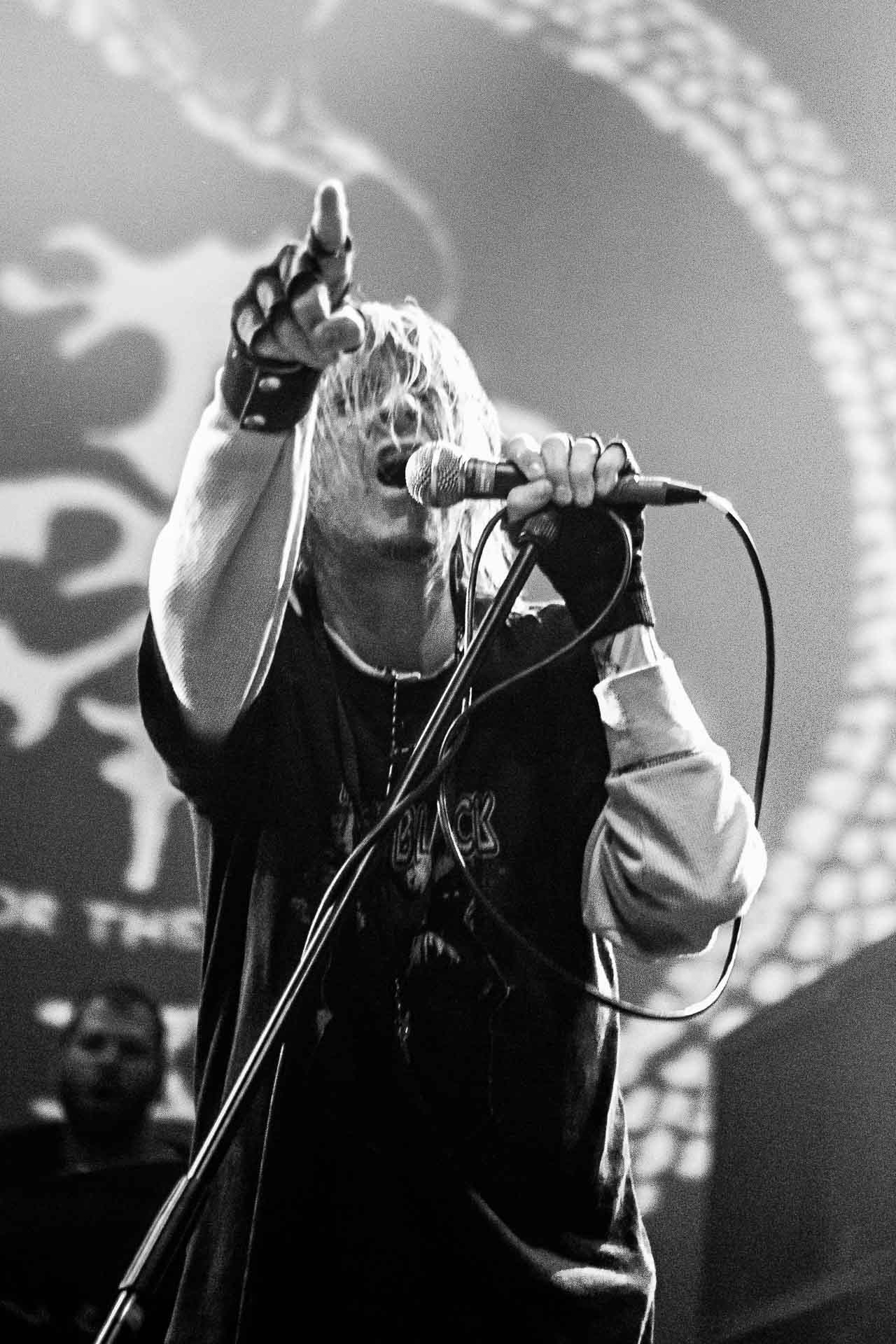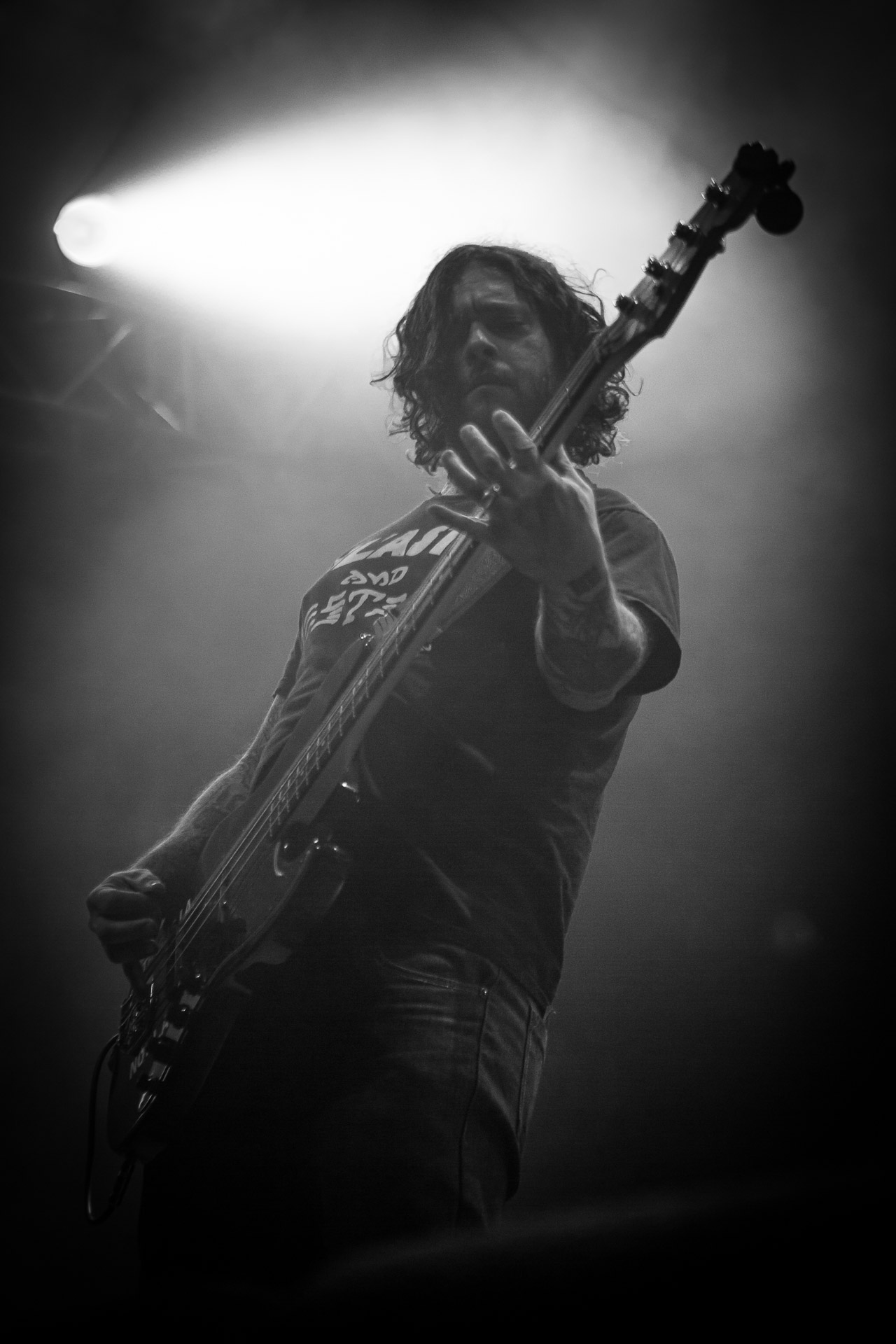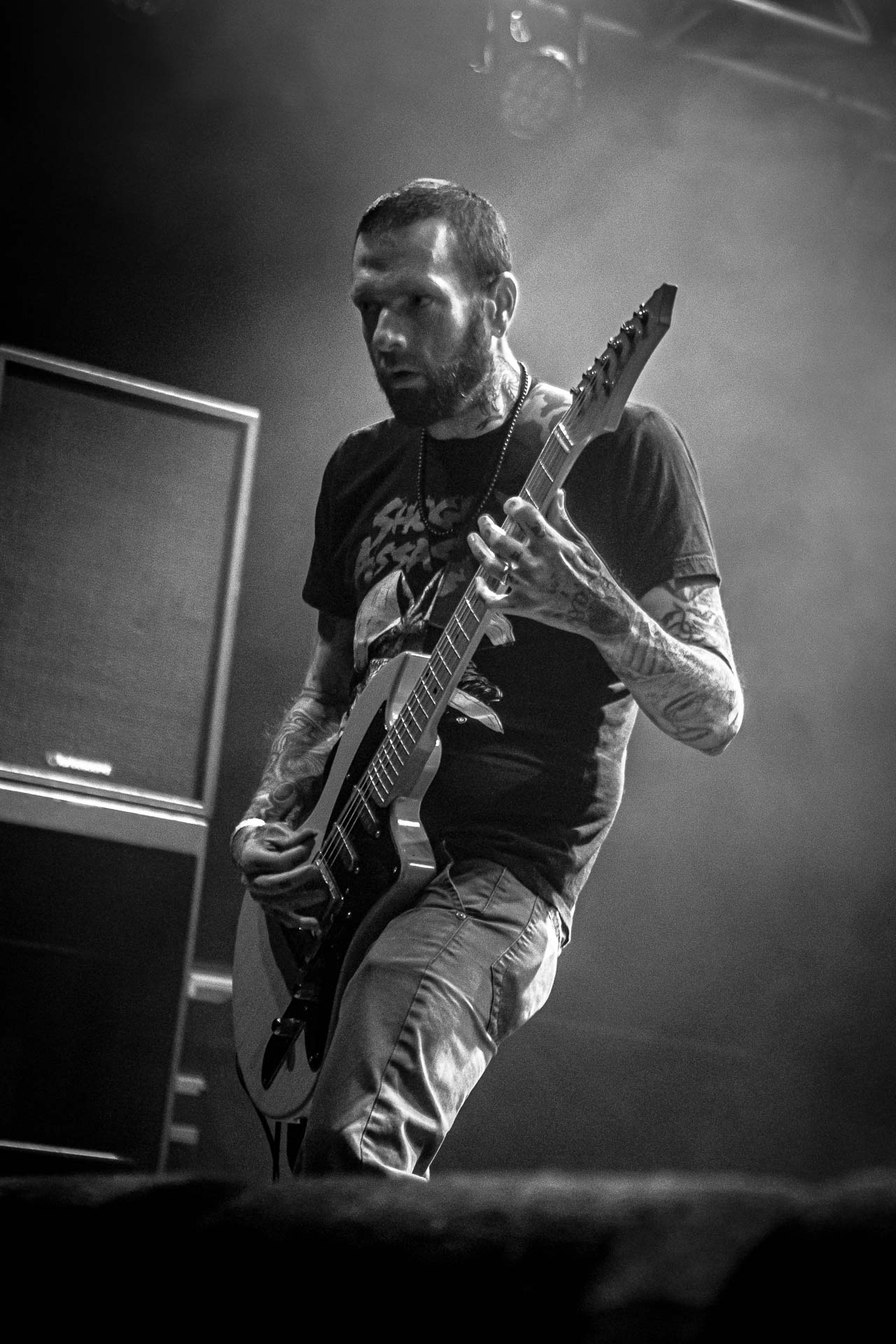Essential Sounds: 30.04.21
April 30, 2021
We’re working our way back to reality from Roadburn Redux, waiting for the world to open up for physical shows and festivals. Still might have to wait a little, but we hope you enjoy this week’s weird and wonderful playlist.
If you want to seek out the tracks elsewhere, here’s the info you’ll need:
Crippled Black Phoenix – Painful Reminder (Season of Mist)
At The Gates – Spectre of Extinction (Century Media)
Domination Campaign – Death Before Dishonour (Prosthetic Records)
Déhà – Blackness in May (Burning World Records)
Shortparis – Moscow Speaking (Universal Music)
A Love Moment for the End – Blacklight Chameleon (Nutriot)
Metropolitan Jam – Heave Blood & Die (Fysisks Format)
Derya Yıldırım & Grup Şimşek – Ay Dili Dili (Bongo Joe)
The Lords of Altamont – Living with the Squares (Heavy Psych Sounds)
Bobby BeauSoleil – Swamp Gas (Self-Release)
Nun Gun, Michael Salu – The Spectre (Algiers Recordings / Witty Books)
Postcards – Home is so Sad (T3 Records)
Zeresh, Davide Borghi – Air From Afar (Toten Schwan Records)
V.V.I.A., In Atlas, Venus Volcanism – Até (Self-Release / Gateway Music)
Essential Sounds: 23.04.21
April 23, 2021
And just like that, we’re back to reality – which does have its upsides too given that we’ve just put together a new playlist for you. Several of the tracks that we premiered last weekend are starting to make it out into the world too!
If you want to seek out the tracks elsewhere, here’s the info you’ll need:
Nicole Dollanganger – Whispering Glades (Self-Release) (header image)
Midwife – Christina’s World (The Flenser)
Lustmord x Karin Park – Twin Flames (Pelagic Records)
Big ‡ Brave – Wited. Still and All… (Southern Lord)
Hante. – Blank Love (Synth Religion)
S U R V I V E – Redline – From Road 96 (Digixart)
VR SEX – Dog Complex (Dais Records)
Jess and the Ancient Ones – Love Zombi (Svart Records)
CROWN – Neverland (Pelagic Records)
Noctule – Evenaar (Church Road Records)
An Autumn For Crippled Children – Melancholia (Prosthetic Records)
Full of Hell – Amber More – Live (Self-Release)
Body Void – Pale Man (Prosthetic Records)
Year of no Light – Réalgar (Pelagic Records)
A Heartfelt Thank You
April 21, 2021
We have to start by thanking you for coming on this journey with us… we say it a lot but this past year or so has been a wild ride in so many ways, and this edition of Roadburn was more of the same. There’s likely no emotion that between us we haven’t felt, and we’re grateful to have had your company on this particular rollercoaster.
To say we’re overwhelmed by the response to Roadburn Redux would be an understatement. Whilst we had hopes and dreams for how it would turn out, we almost didn’t dare to have any expectations or to say those dreams out loud. We didn’t know how it would feel to experience a version of Roadburn without an in-person connection, we didn’t know who would show up, who would stick around – it was all an unknown.
When we set out to put together Roadburn Redux, we knew that we would have to follow our own path – as we always do – but also ignore what we have learned over many years of putting on events; this was something different. All the parameters of Roadburn organisation that we were familiar with had shifted, or vanished entirely. We’re grateful to the support of some wonderful labels and booking agents who were willing to take a chance on our ideas. So whilst there was a tremendous amount of time, care, love and attention that went into Roadburn Redux, to some extent, we were still winging it when it was time to go live.
It wouldn’t have been possible at all if it weren’t for the 013 venue’s belief in what we had already established with Roadburn (that’s us, and you by the way) and what the future is capable of holding for us. The production team adapted to the necessities of their jobs changing essentially overnight and accommodated every restriction and requirement that was needed to allow bands to perform live.
And what performances we were granted! The production values were second to none, and the results were truly spellbinding! We couldn’t be more proud of the high level output that was made possible by our production team working alongside the Livewall team. And of course the bands – who had to overcome surreal circumstances to deliver their art – were beyond amazing, every single day.
As for the pre-recorded sets and audio/video premieres, we were absolutely blown away by the effort and commitment that bands put into crafting, recording and delivering assets. From the newest bands that we hope we’ve helped uncover, right through to the established artists that we have cherished and celebrated for years. Sometimes things came together at the last possible moment, and sometimes against the odds, but we got there in the end.
There would have been no festival at all without the work and dedication of the people we have just mentioned, but it became evident over the last few days that the true spirit of Roadburn is only conjured up when we all experience the music we love – together. Of course, it was strange to realise that this was happening, or even possible, in a digital realm – but it was so apparent within minutes of the website going live that something special was happening.
As ever, it will take a while for Roadburn to sink in, for us to process it and figure out where we go from here. We’re somewhat stunned that we pulled it off ourselves, but dare we say that we’ve taken Roadburn to a new level? We’ve learned – through our shared sense of community above all else – that just about anything is possible, and that you’re coming along for the ride, wherever it may take us.
It is our most sincere wish that next year we’re together in person – April 21-24, 2022. Until then, we hope you have some special memories from Roadburn Redux to hold on to.
— Walter, Becky, the whole Roadburn team & the 013 crew
Roadburn Redux wouldn’t have been possible without the support and help from: Fonds Podiumkunsten, Gemeente Tilburg, Provincie Noord Brabant, Ticket To Tilburg and Brewery Bavaria.
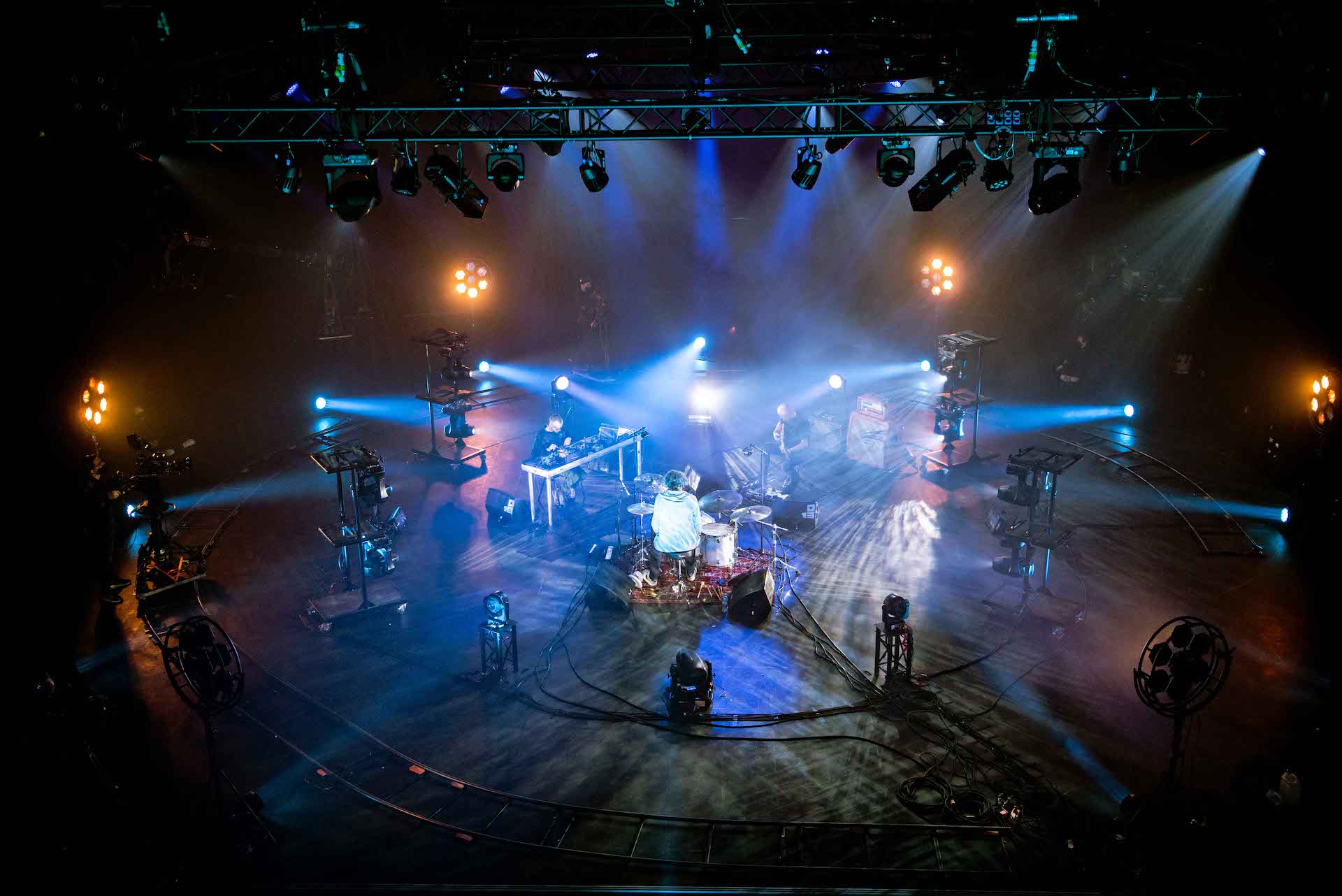
Roadburn Deep Dives: Emma Ruth Rundle
Roadburn 2017, Sunday 23 April, 013 Green Room
Redefining heaviness. If you’ve had any sort of interaction with the world of Roadburn in the past few years, you have surely come across this notion at some point. Just like everything else in art, culture and human innovation, heavy music is changing, evolving, becoming richer and gaining new meanings. As a festival that strives to give a home to groundbreaking and unusual artists – the “freaks in the corner”, as Steve Von Till from Neurosis so wonderfully puts it – it’s almost a mission statement for Roadburn to not only keep up with what it means for music to be “heavy” but actively contribute to that expansion and that discovery of new territories. And if that might seem like a complex goal, or even a rather vague ethos to follow, sometimes everything comes together and is crystallised in a single moment; something you can point at and just go, “yeah, that’s it”.
That’s precisely what happened when one lonely – and, as it turns out, rather terrified – woman stepped up to the Green Room stage on the last day of Roadburn 2017. Emma Ruth Rundle didn’t know it at the time, but she was about to make Roadburn history.
— José Carlos Santos
— Paul Verhagen (Pics)
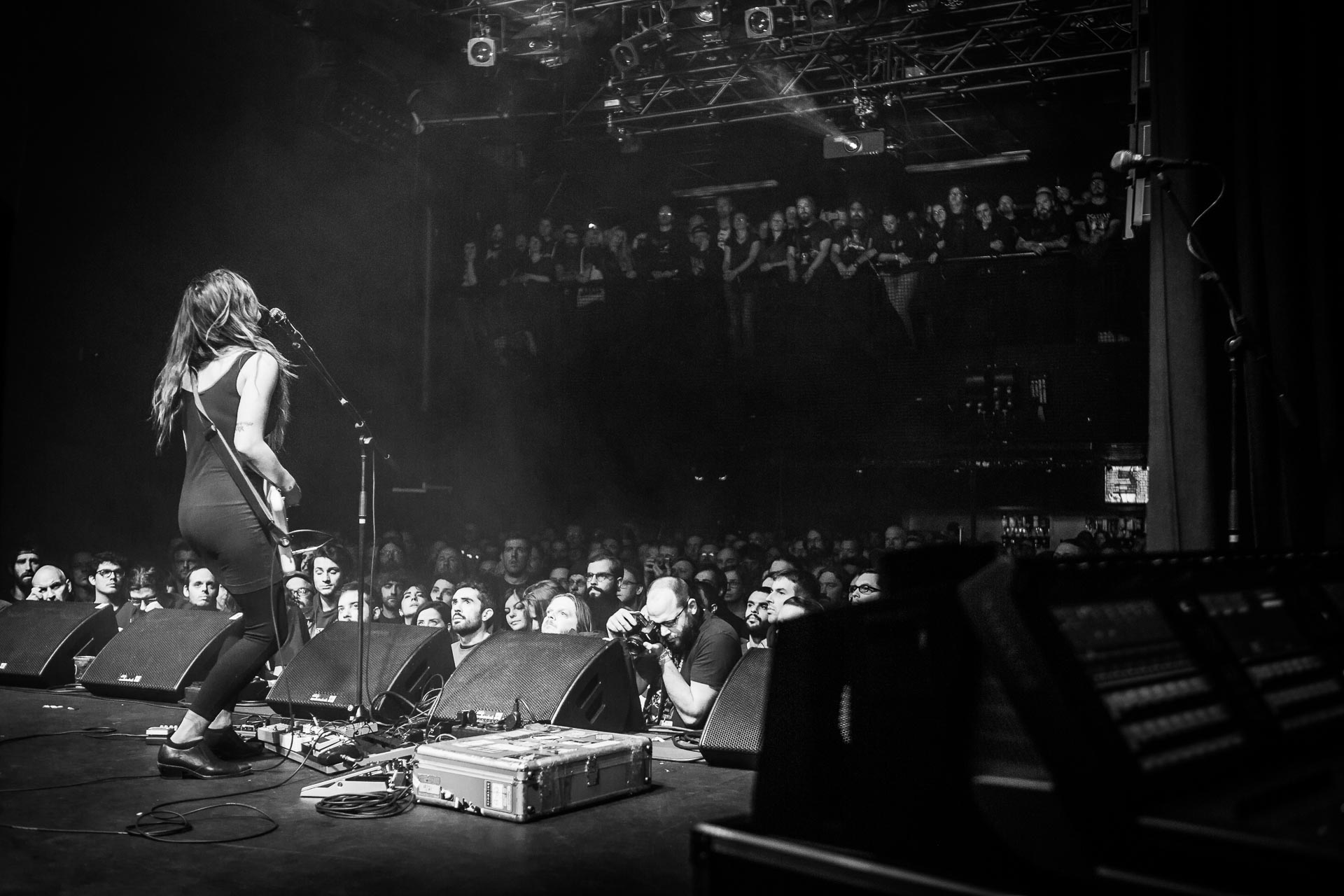
“It was such a turning point for the festival,” says Becky Laverty, one of the main faces of Roadburn, as the festival’s Press & Communications manager, who was instrumental in getting Emma to perform this show of shows. “It helped us to open up some doors and explore what heaviness meant. That show summed up really well that ethos of redefining heaviness. That one woman, with no accompaniment, was able to create this unique atmosphere, so dense and overwhelming. It was absolutely a heavy performance, but not necessarily the kind of thing that people associate with heavy music. It immediately became one of the shows that we’ve referenced the most when booking shows. What is heaviness, and in what ways can you define it? That’s a question we ask ourselves all the time, and this show is an important part of the reply to that.”
For all the show’s impact on Roadburn and on Emma herself – we’ll get to that in a minute – it’s funny to realise, when talking to the parties involved, how different it all could have been, if not for a few random details that, with seemingly cosmic will, worked together to create the conditions for that powerful performance. Like, for example, why she stepped up to the stage all alone.
“Before Roadburn, I was on a really long tour, which started with Deafheaven in the United States, and I basically never got out of the van,” Emma says. “I kept going with Jaye Jayle, who were touring. When I got the Roadburn offer, I decided to book a European tour around it as a lot of American bands do, to make it more affordable. Because I couldn’t afford to take my own band, the idea was to use Jaye Jayle as my backing band, and have them open the shows during the tour – that would give them the opportunity to go to Europe too.”
When things didn’t work out with Jaye Jayles‘ drummer, Emma brought in the drummer from her own US-based backing band, and the group only had a few days to rehearse for the tour. Then they all went to Europe, without ever having played a show together.
“We had a day, as a long soundcheck, before a show somewhere, to play as a band. That was it. I’m saying this, and I realise that I would never do any of this now, when I look back on it,” she laughs. “We made it through that night’s show. But was it good? I don’t know! But it didn’t feel right to me. The whole purpose of this trip was to be at Roadburn, so I reached out to Walter and Becky asking them if a solo show was a possibility they could consider.
“If I had the opportunity to present it as a band, and to represent well the album I had made, which was the reason why I was invited, I would have chosen to do that. But I felt that it wasn’t good, it wasn’t presentable, and the last thing I wanted to do was to be humiliated at Roadburn. I was finally going there, it was such an honour to be there as an artist, at that magical place… So I eventually made the choice at the last minute to do it alone.
“I hadn’t played a solo show for some time because I had been touring with my US band,” Emma continues. “I hadn’t played in that format since I did solo opening slots for other bands, with reimagined versions of what the albums were, but at least that’s something I did do for a long time. I felt I had enough experience and I felt strong enough to do it like that again.”
To add to this sense of a-woman-against-the-world loneliness, another unfortunate event unfolded: “This was the same year that Chelsea Wolfe, King Woman and True Widow played,” Becky recalls. “There is actually a photo with Chelsea, Nicole, Kristina and Caro from Oathbreaker – this group of great women who played Roadburn, and Emma wasn’t in it because she was only there on the Sunday. I remember a conversation with her when she told me she was really looking forward to coming here and seeing all these women who were playing that year and with whom she’s friends with, and none of them were there anymore when she arrived and she was all on her own!”
But Emma never backed down. She was prepared. Scared, but prepared. “I knew that it was going to be terrifying,” she says. “All of the emotions leading up to it, I would describe them as terror and fear. You know that nightmare where people are standing naked in front of their class or something? That was what this whole Roadburn thing was like to me. I hadn’t performed in front of metal audiences in a long time either, but I do have a lot of experience with people heckling, talking to each other, not listening, even dumping beer on my stuff. I was ready for all that. I was ready to go into battle. I wanted to have this accomplishment of performing no matter what. I had this idea that if I had a band, people would have more respect for it and listen. And if they didn’t, at least we’d be louder than them.”
Fortunately Roadburners came through and proved themselves up to the situation. The audience in the Green Room on that magical evening was in itself a sanctuary, it lifted rather than brought down the brave performer singing her heart out to them.
“The Green Room was absolutely crammed!” Becky recalls, still in some awe of the atmosphere that was built in there. “Emma looked a bit nervous when she first came out, but then she totally owned the stage. It was such a powerful performance. Although I believe it would also have been incredible if she had played with a full band, it was really a stark performance, which felt right because that album, Marked For Death, is quite stark as well. She looked so strong and powerful, she dominated in such a calm and quiet way. Afterwards I spoke to her backstage and I told her this, and she said it had been one of the shows where she’d been the most terrified. But it didn’t come through at all.”
It did not, but Emma was indeed: “I’m super disorganised, and Becky and everyone from the staff really helped me. I was like a little bird and they picked me up and put me back up on my nest. Once I got to the Green Room – and I’m reliving the fear right now! – as soon as the show started, I realised people were silent,” Emma says quietly, her own voice hushing as if still in acknowledgement of the incredible response she got on the occasion. “It was a very powerful and moving experience for me. I think to this day it still remains my favourite show that I’ve ever played.
“I’ve never felt the respect that I felt from the Roadburn community and the audience, it really blew my mind,” Emma says. “It changed my life, honestly. I felt that was a pivotal moment in my career as a performer. Nothing has ever been the same for me since that moment. It was the first time that I felt… maybe this isn’t placed in the right way, because people should get their sense of self-worth from other places, but at Roadburn I felt respect as a musician for the first time in a way that I had never felt before in my life: I felt like I had a place.
“It gave me a strength that I’ve taken with me forever since then. That I have the right to do what I’m doing, that I have a place to have a voice, that I shouldn’t feel ashamed for myself, for what I’m saying and what I’m singing.”
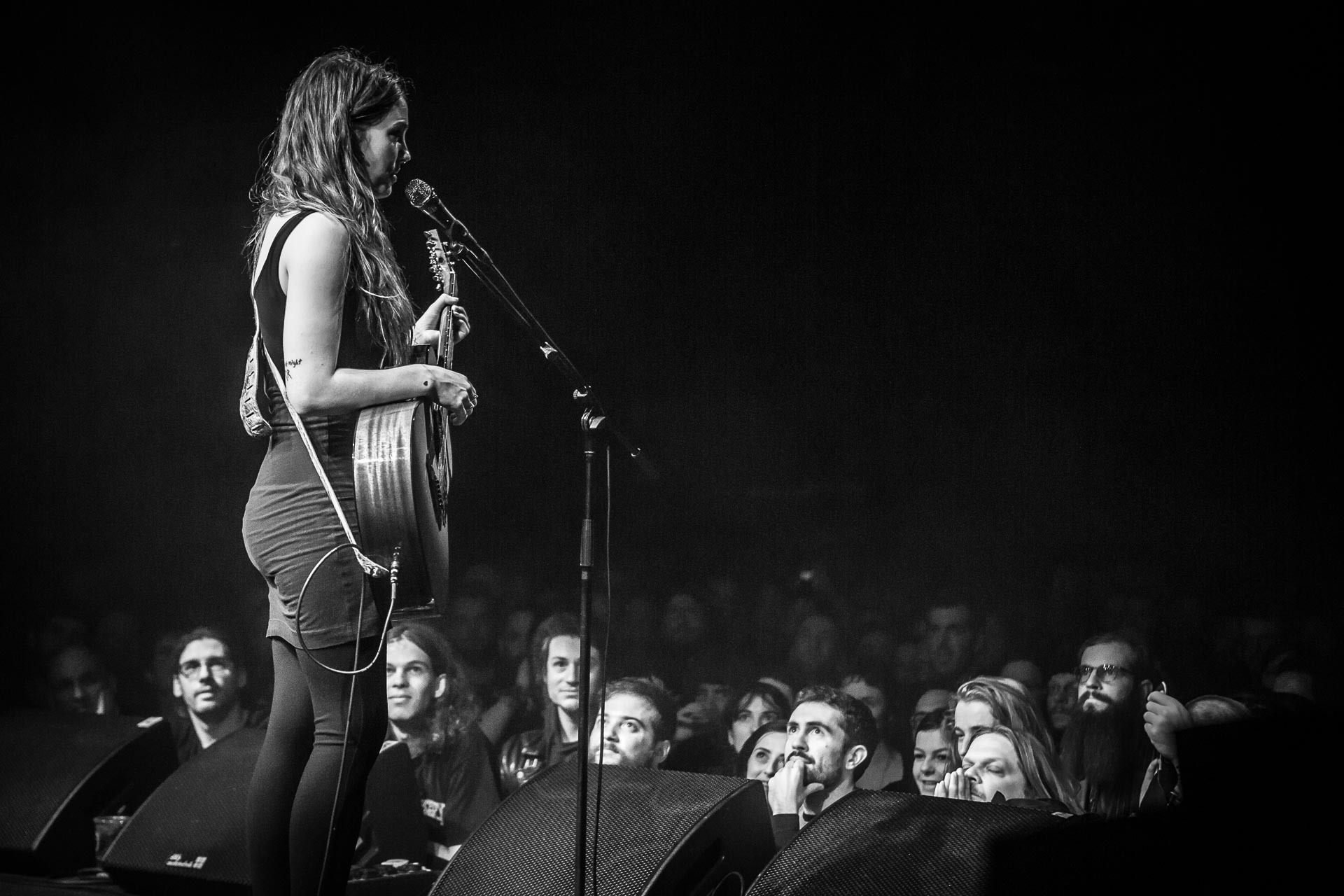
All of this somehow makes missing Emma’s curation-that-never-was in 2020 even more heartbreaking, but there are also good things to take away from that. “It’s such a shame her curation never came to fruition,” Becky laments. “But I do feel that our relationship with her is not over and there is much more to come. That was just the beginning. It’s also to do with how heavy music has evolved. I don’t think Emma would be covered in the likes of Metal Hammer ten or fifteen years ago, for example, and for that matter nor do I necessarily think she would have made much sense at Roadburn then, even. The boundaries of heavy music are shifting, and she is a prime example of how they are evolving.”
Emma herself says of the pandemic-interrupted Roadburn 2020: “It’s sad. It’s crushing. We all did the work, it was there. It would have been so cool. It was such an honour, and such a highlight of my career as a musician, working with Walter and with Becky and everyone involved, making the decisions, talking to the bands, getting to know some of them, getting a feel for this amazing community and how it was all coming together in this moment.” But she also comes away with the positives and with the hope that doesn’t fade: “I don’t feel like everything was lost for me though, I still took away an amazing experience. I do feel horrible for everyone who didn’t get to see the shows, I’m sad that I didn’t get to see the shows! And for all the bands that didn’t make it there, too. But this is what it is now. We’re still here, we didn’t lose our lives and a lot of people did, that’s how I have to look at it. I really look forward to when I can get back to Tilburg and to Roadburn again.”
We’re all counting seconds over here, dear Emma.
Roadburn Deep Dives: Thou
Roadburn 2019, Saturday 13 April, Ladybird Skatepark
“Oh God, that one,” Roadburn artistic director Walter sighs and then laughs wearily, just at the mere mention of Thou’s legendary Misfits covers show at the Ladybird Skatepark during their residency in 2019. That reaction alone already tells you everything about the odyssey that took place behind-the-scenes of what has become one of the most surprising and talked-about moments in Roadburn history.
When Thou were confirmed as Roadburn’s 2019 Artists In Residence they agreed that they would play four distinctive sets over the course of the festival. Only three of these shows were included in the schedule – the time and location of the fourth remained under wraps. Despite that (or maybe because of it?) it became one of the most unforgettable shows in Roadburn’s 20-plus years. So, let’s take this from the very beginning…
— José Carlos Santos
— Teddie Taylor (pics)
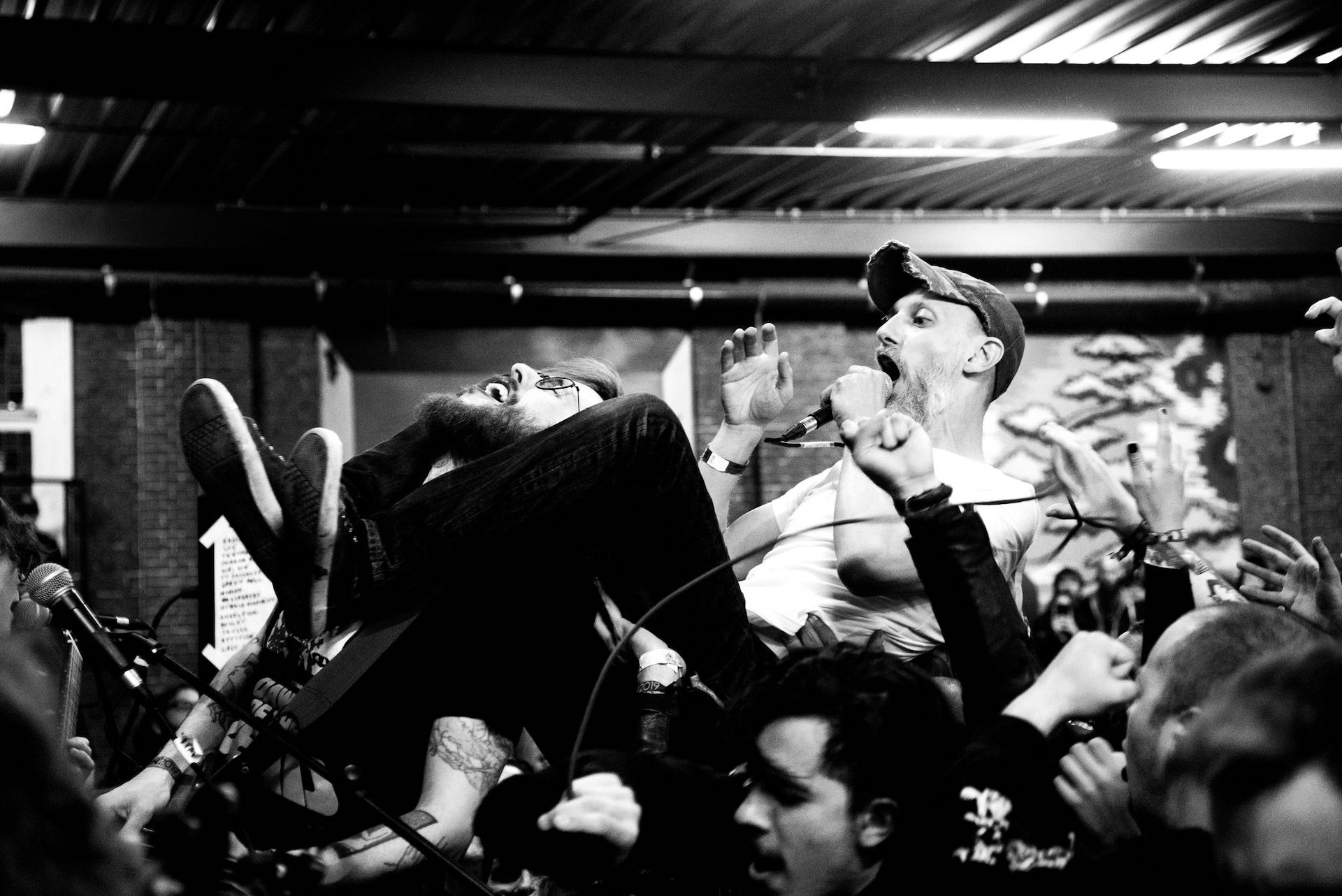
“From the first moment I talked to Bryan about Thou being artist in residence for Roadburn, the idea of having a secret show was already there,” Walter reveals. “I told them about the options: I mentioned there was a skate park, and the Hall of Fame room.” Thou vocalist Bryan Funck confirms: “We had decided pretty early on that it would be really cool to do a covers show, and we wanted to keep it secret, and also do it at the smallest place possible. We didn’t think so many people would be that excited about it, so we thought we’d just create something a little more intimate, just cram a bunch of people into a small space.”
Thou had originally thought of the Cul de Sac for a venue, but the festival wasn’t using it that year. The smallest room available was the Hall Of Fame; but it wasn’t quite right for what the band had in mind.
“The room itself is small, but the stage is quite wide,” Bryan explains. “It’s a nice, cool space, but in terms of what we were going for, especially with that set, it was a bit sterile and it just wasn’t going to work. The skate park stayed on our radar, mostly because it felt like a punk thing, something that’d be fun to do. We even imagined that it would be great to have people skating at the same time and everyone going nuts!”
Fortunately, it didn’t get that far, as security staff had enough on their plates as it was, but the journey towards skate park acceptance was to be a long and arduous one for everyone involved. “We had different opinions about how popular this was going to be – we thought that there would be people there, sure, but not that many,” says Thou guitarist Andy Gibbs, laughing now at how colossally wrong he was in that prediction. “If there were other things happening at the same time, which there were, we thought it’d just be this niche thing. We weren’t sure if word would spread, and how fast, so for us it’d just be like a really small show with half a dozen people. But Walter told us right from the beginning that no, there’d be a shitload of people and it’d be difficult to manage. I don’t think I really understood that until right before it happened. We had thought people would just stand there and stare blankly at us like they usually do,” he laughs.
As we all know by now, it was far beyond a ‘niche thing’. Anyone who was at the festival that afternoon will remember the feverish anticipation when people started to realise that the secret show was due to take place.
“Until a couple of days before the festival, things were still undecided on both ends,” Walter recalls. “The Hall of Fame was easier, there was a stage, it was a proper venue, but there was a certain magic about doing it at a skate park. The real fun started when we announced the running order and the times. People started going crazy because the fourth show wasn’t announced, they kept asking where and when it would be, and we would just shrug and say, ‘We don’t know!’ But it was really obvious from the schedule, the spot was right there – the Hall of Fame ended at 11pm that evening! What did you think was going to happen afterwards?”
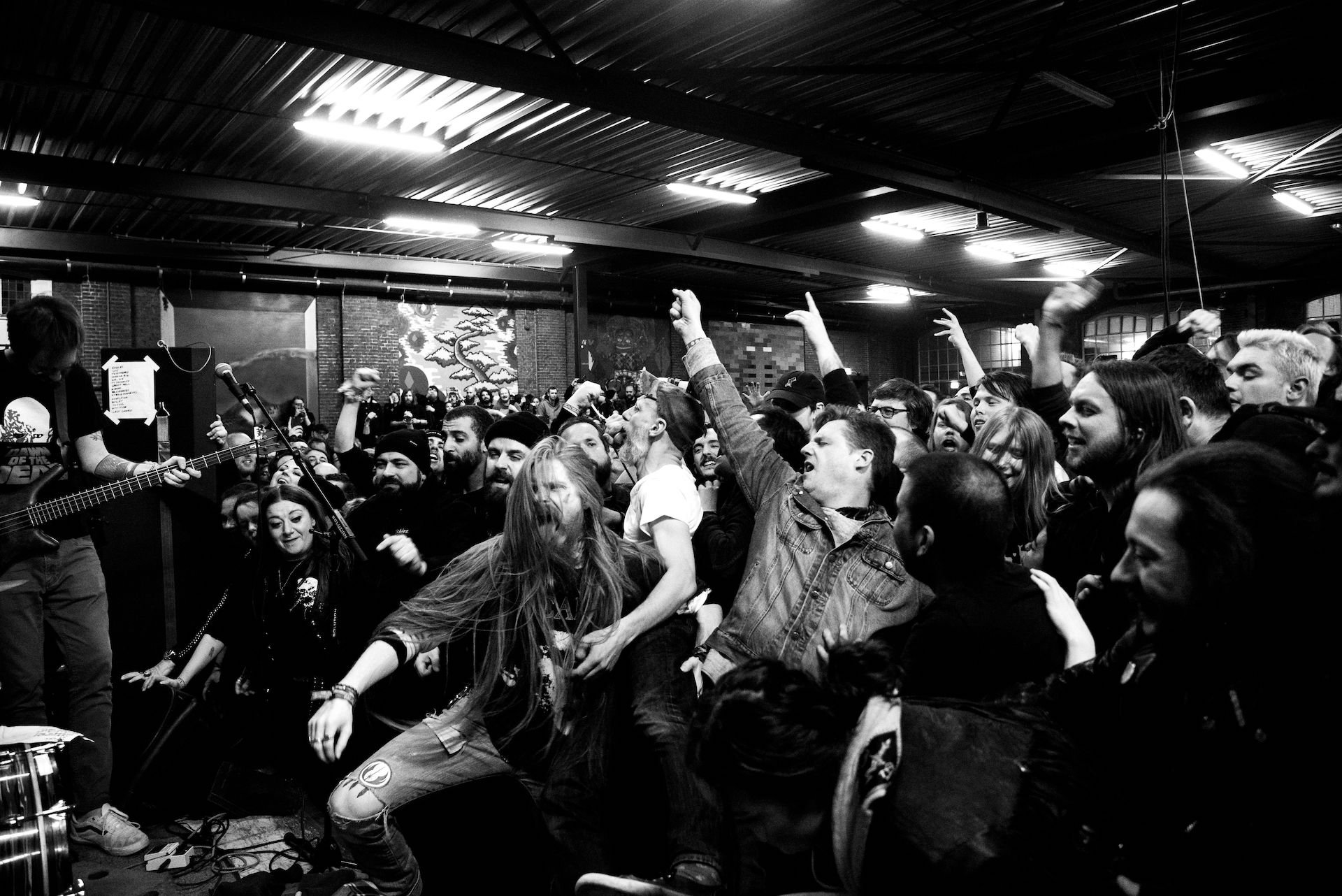
When Thou arrived in Tilburg at the beginning of the festival, they went to check out the two venues. And while they weren’t particularly excited about the Hall of Fame, they figured it could work. But over the weekend there were a couple of other impromptu shows at the skate park – Thou saw the potential and wanted to make it work.
“On Saturday morning, anticipation was at a high,” Walter remembers. “The band had decided and asked for the skate park, and production went ballistic. ‘How can we have hundreds of people in there, it’s not doable!’ they told me. People at the festival were, at the same time, getting super anxious, to the point that I couldn’t even walk around anymore without someone coming up to me and asking me about it every time! I remember even Nergal, who was at the festival, at one point came up to me and asked me to tell him where it was going to be! And I just kept saying ‘I don’t know!’, and it was really the truth, even if no one believed it!”
If you’re not too familiar with the proceedings of putting shows together, you might be wondering what all the fuss is all about: it’s just a room but with ramps, right? Walter explains: “The problem is that the skate park is not a venue for shows. For the little punk shows we did there, we just threw together a small DIY PA, and there were a few dozen people watching, and that was fine. But the production team was adamant that it wouldn’t be able to accommodate something of this size and scope.”
That seemed to seal it; but there was one superhero about to rush in and save the day. “After several serious conversations with all parts involved, it was Frens, the 013 general manager, who came to the rescue,” Walter laughs. “He told me, ‘Walter, we need to do it DIY style! This is punk rock and we’re going to do it at the skate park, we have to!’ I told him that production didn’t want to do it, so he went and talked to them, and just told them matter-of-factly that it had to happen because the band was on the way and it was confirmed with them already. Which it wasn’t! But he overruled everything anyway. This happened around 10pm, about an hour from the show. We had an impromptu meeting with security, and we also still had to call the general manager of the skate park to tell him what we were going to do, and he kind of gave us the go ahead, he was just like, I don’t know, sort it out with the production!”
If you have met him at the festival, you’ll know that Walter in panic mode is usually, despite the seriousness of the situations, a harbinger for special things to happen. And here he was, going berserk once more, right before yet another legendary happening.
“I rushed to Thou’s dressing room, and all the band were there with Emma Ruth Rundle. I told them, ‘Skate park is happening! What amps do you need?’ Everyone was super excited and started throwing around ideas: I want a model T, I want that one in the corner backstage, this and that. Five minutes later, I’m backstage with a lorry and all the amps on the street being loaded on it to be carried to the skate park. Of course, that’s when some people saw it happening, and started to catch on. We set it all up with the recommendations of the security staff, who were super helpful, because we still had to measure doors and all kinds of things like that: we still didn’t know exactly how many people we could fit inside without running security risks, which we obviously weren’t going to do.”
All in all, it was one of those situations where it was better to ask for forgiveness than permission. “The day after the show, we had to have a real talk with production, because they were a bit angry,” Walter says sheepishly but with a devilish grin. “They were not amused about mine or Frens’ actions. I know I was very undecided in the days leading up to it, it was all ‘Hall of Fame! Skate park! No, Hall of Fame! No, skate park!’ all the way, then I reassured them on Saturday that we wouldn’t do the skate park, and then at 10pm I’m all like, ‘SKATE PARK, YEAH!’ I get why they were mad.”
Fortunately, anyone who was there will surely be unanimous in considering that it was all worth it. The first thing Bryan told the audience before they started playing was, “So look, we’re gonna have a lot of fun, or we’re going to look like a bunch of fucking dipshits. You gotta pick. Usually we look like dipshits, so I’m thinking we’ll try to have something new tonight, and have fun.” And fun they had…
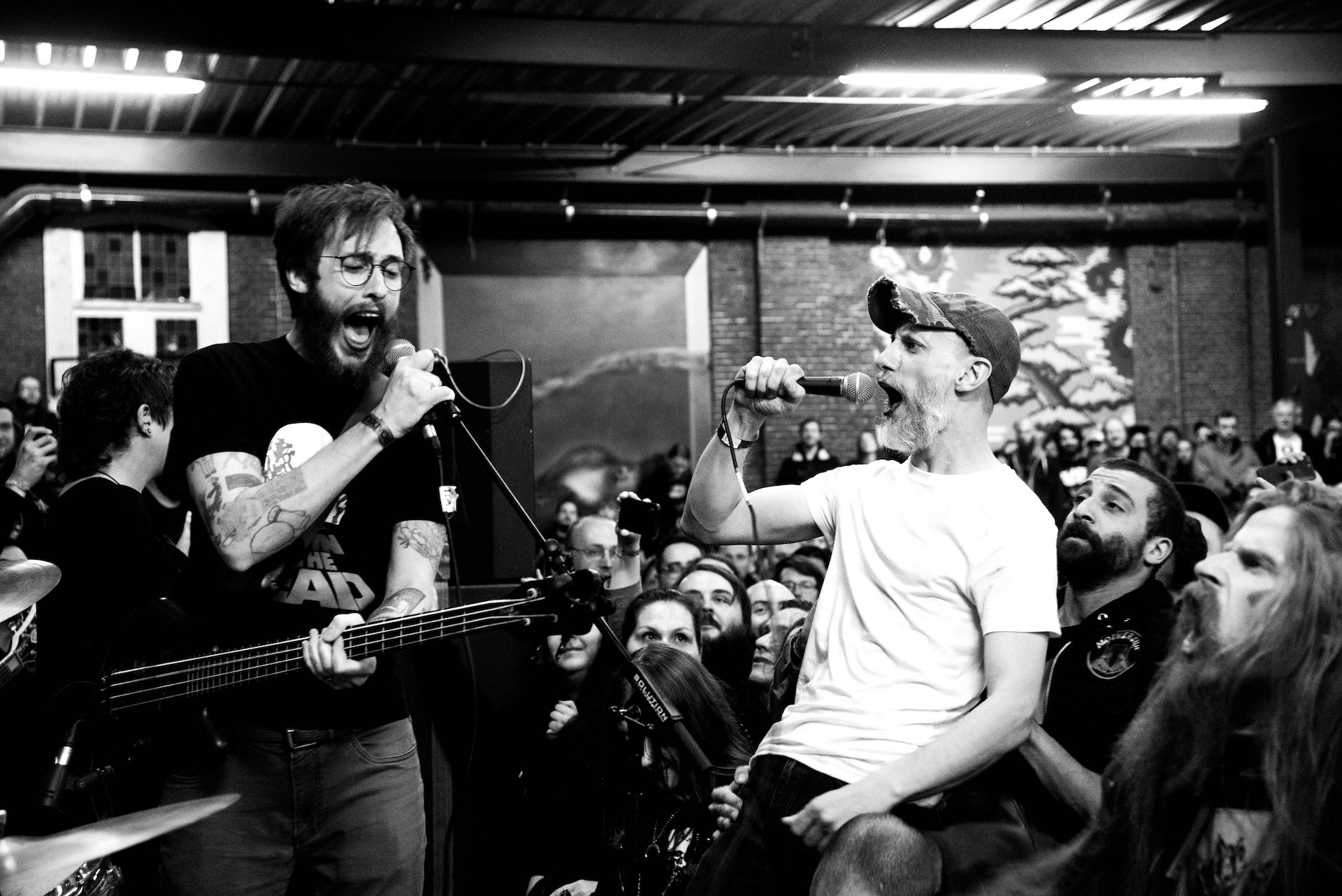
“The amount of people there was actually less exciting to me than the actual response to it, that’s what made it so memorable for me,” Bryan says. “People were so into it, and having so much fun! For as little as we practised for that set, and probably for as poorly as we played, it turned out incredibly well. It was easily one of the most fun shows we ever had. That set is now the set by which I judge all Thou sets by. It’s actually become a sort of completely unrealistic thing to live up to, but I can’t help it. After having experienced it, now I know it can be like this. So why can’t it be like this all the time? It sort of ruined our normal shows for me!”
For the festival, it was an equally momentous occasion. “It was a defining Roadburn moment,” Walter states. “As awesome as the big shows are, as much as we are known for our production values, as much as the commissioned pieces are an essential part of everything… sometimes, it all comes down to stuff like this. All these bands started out in garages, in basements, in skate parks. This sort of thing is where our hearts lie, it’s where we all come from. Seeing a band in a garage or in a damp basement, it’s in our blood. And it all came together on this show. The band, the fans, the staff, everyone in that room came from that same place. This is the underground that everyone fell in love with years ago, at the very beginning of our individual journey. The expression in people’s faces, the smiles, the joy, the excitement… I’ll never forget it.”
Also, in more practical terms, it had an effect that is still to be measured: “A venue was born, too,” Walter says. “The requests we had for bands wanting to play the skate park in the 2020 edition that didn’t happen was insane. It’s actually being rebuilt now, so we don’t know how it’ll look or even if we’ll ever be able to use it again, but we’ll see.”
It’s interesting to look back now on such an important part of both the festival and the band’s history, and to think about how any small detail might have completely changed it. For instance, Andy reveals that it wasn’t always a clear choice to have Misfits as the theme of the covers show.
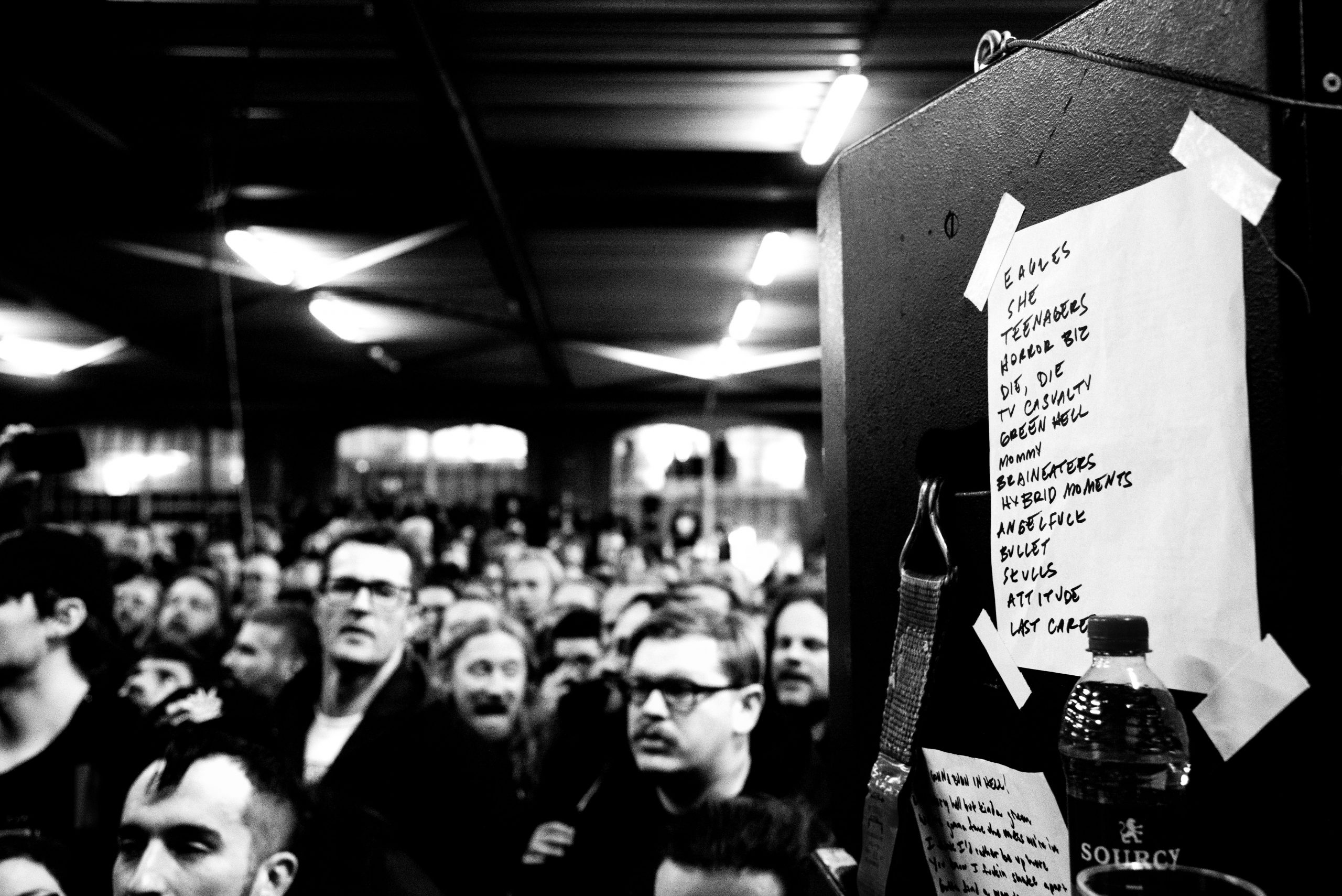
“Mitch [Wells, bassist] actually wanted to do Deftones,” Andy says. “I think when we first talked about it, Walter thought we’d do Nirvana, that’s why he suggested it in the first place,” adds Bryan. “Which makes sense: we do a million Nirvana covers, so that’s what people would expect us to do. But for us it was like, let’s just have fun with it. Being a crazy show, and at a place where people weren’t expecting, it all came out of us not wanting to do just the same old thing that everyone thought we would.”
Andy agrees: “That was the whole appeal. I don’t think anyone would peg us for Misfits fans, and to be honest, none of us are really huge Misfits fans! Mitch was really pushing for Deftones, but we pushed back a bit on that, because no one’s gonna go crazy over a bunch of Deftones songs: it’s not energetic enough.”
Perhaps even more shockingly, Bryan quips: “I wanted to do Metallica!”
“That would have been great!” Andy agrees. “But the songs are so complicated: there was no way we could have gotten that together in time, we didn’t have a ton of time to practise for this.”
And you know what? Thou and Roadburn aren’t done playing tricks on you guys. “I loved all the secrecy about it, that’s the kind of shit I love,” Bryan says. “If we ever come back to Roadburn, I’d love to not even be on the bill, and just show up and do a bunch of really fun and weird stuff and have a great time with it. Just surprise people!”
Andy picks up on this: “Maybe we can play on the other side of town. In the lobby of the hotel, like that Nine Inch Nails marketing campaign: we’d leave cryptic notes in bathrooms all over Tilburg. That would be sick.”
Sit tight: who knows what Thou will have in store for us next…
Roadburn Deep Dives: Neurosis 30th Anniversary
Roadburn 2016, Saturday 16 April 16th & Sunday 17 April, 013 Main Stage
The evolution of Roadburn has been quite a gradual thing. From the early days of paying tribute to the forefathers of the stoner, psych and doom scenes (Blue Cheer and Sabbath will always be in Walter’s heart!), through to the expansive, forward thinking, genre-defying festival we have before us today – it’s been a wild ride. Somewhere in there, around the mid ’00s – which is coincidentally when Neurosis made their Roadburn debut – Roadburn started to explore the outer reaches of heavy music, relishing uncovering whatever the underground had to offer.
Neurosis and their 2007 headlining show proved to be pivotal in the way heavy music was presented at Roadburn. And as the festival evolved over the following years, so too did the band, culminating in two special 30th anniversary shows in 2016. These shows highlighted a decade of synergy and growth for both parties. They served as a second marker in the gradual transformation of the festival, and a significant impetus as it sought to further redefine heaviness.
In this series of Roadburn Deep Dives, we naturally picked – a complete no-brainer if there ever was one – the Neurosis 30th Anniversary shows at Roadburn 2016 as one of the most momentous and memorable occasions we have ever witnessed at the festival. But it’s impossible to look at that admittedly crucial moment without realising how much of it was simply the logical outcome of that profound relationship established a decade earlier.
— José Carlos Santos
— Paul Verhagen (pics)
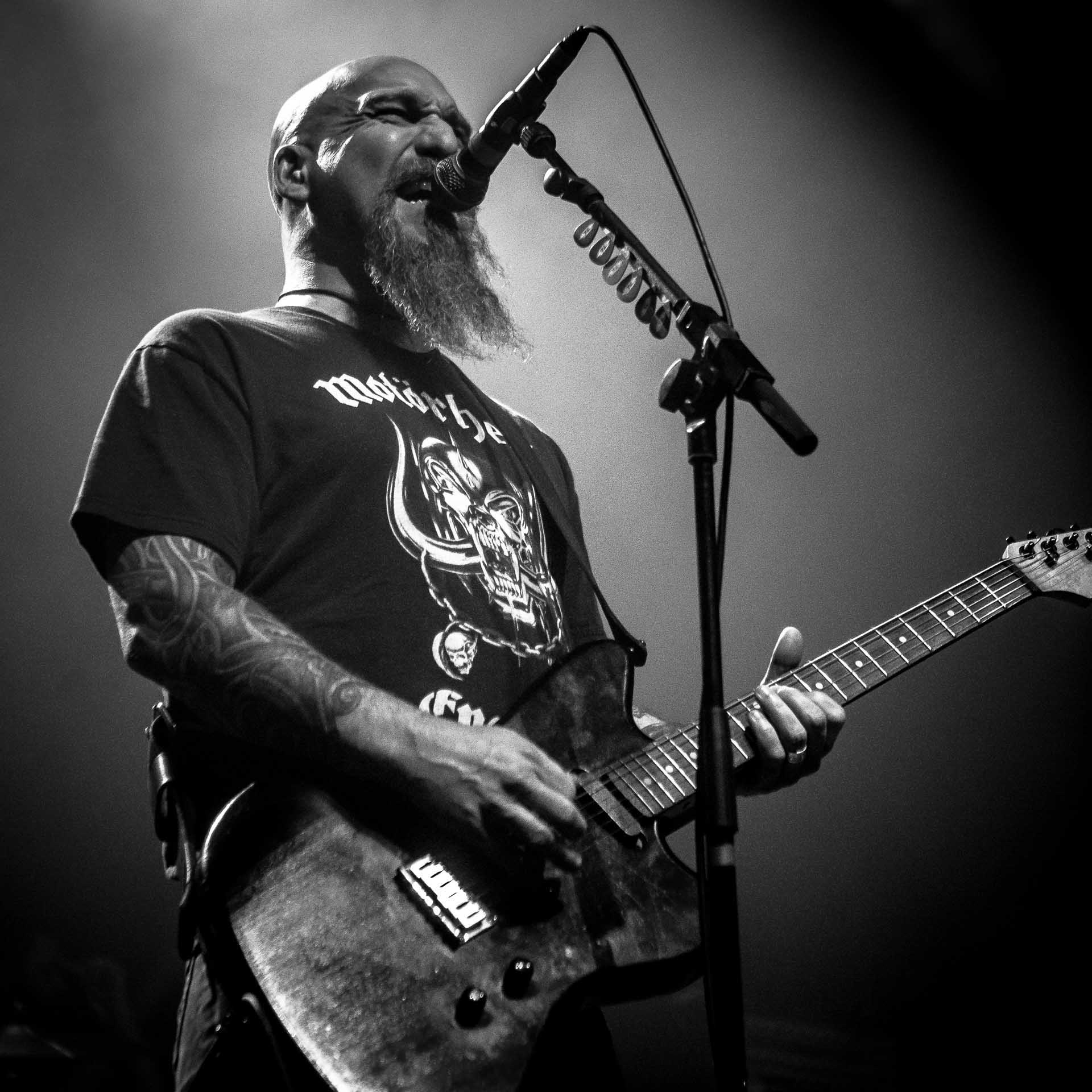
“Everything dates back to the 2007 edition,” says Roadburn’s artistic director Walter / Roadburn, the heart and soul of the festival, already with a hint of emotion in his voice. “Neurosis hadn’t been in Europe for a while, and they were quite hard to book. Yvonne Mclean, who worked for Roadburn at the time, was friends with Steve Von Till’s then-wife, with whom she talked to try to reach the band about the possibility of playing the festival. I had met Andreas Kohl from Exile On Mainstream a couple of years before, and he had worked with Neurot Recordings – he also vouched for Roadburn. Those connections were a big help in trying to pass the message of what the festival and the venue were like, and why we wanted them as headliners back in 2007. They eventually agreed, and we were able to announce them: that was an incredibly important moment.”
As if to metaphorically pinch themselves, and make sure that Neurosis really existed and would bring their unique brand of heaviness to Roadburn, Walter recalls that he and his close collaborator at the time, Jurgen van der Brand, went to London to watch them play at The Forum, a few months before Roadburn. “The festival was already sold out by then,” Walter remembers. “Andreas was at the show too, so we went there, we saw the whole show and we were absolutely in awe. There was such a buzz around the band, and there were a lot of people from abroad there – we even bumped into our friend Michiel Eiknaar, who sadly passed away in 2019, and a couple of other people from Tilburg.”
After several years where Neurosis rarely played live, this buzz was more than justified. Their shows were the stuff of legend, and Neurosis were just about the hottest band in the underground at this time. It was an enormous coup by Roadburn to secure them for the 2007 edition. But it wasn’t easy.
“I remember they had very peculiar backline and tech specs, and everybody told us they were a somewhat difficult band in that aspect,” Walter recalls. “But the 013 knew it was very special to have them over, so they did their very best to fulfil their technical rider. We really wanted to make sure that everything was done perfectly for them. That happened, and I think they were very pleased with how the Roadburn and 013 staff treated them. I think they realised that we took them very seriously as a band, and that we had done everything to accommodate them and to make sure they could play their very best show.”
When asked about those first contacts with the festival, guitarist/vocalist Steve Von Till laughs and says, “My memories of Roadburn all blend together!” Nevertheless, the important things did stick. And Walter is right – they were impressed.
“What I remember about 2007, although some of the details are hazy, is that Roadburn immediately felt different from any other festival we had been invited to,” Steve says. “It felt just like where we were coming from: more DIY, more underground appreciation… Not only that, but more intimate too. It wasn’t trying to be some giant thing in a grassy field. It was in a proper club, with good rooms, amazing gear, friendly and very professional staff, and a great collection of really well-curated bands. So many bands that I wanted to see were also playing, and I think every other band felt the same. As a musician, you would be watching a band you like, standing next to someone from a band you like. Any lines between band and audience – and staff – become quite blurry at Roadburn.”
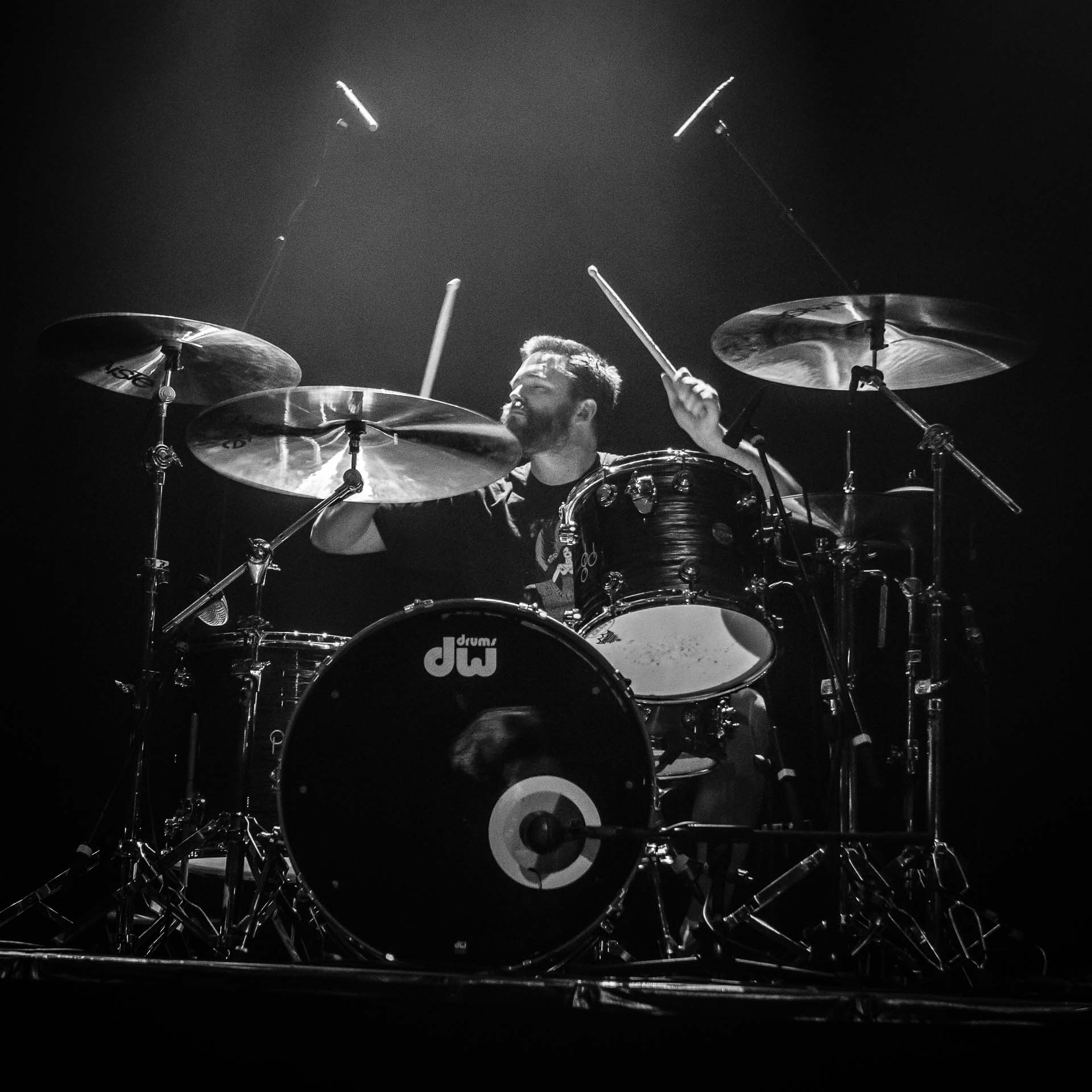
It was clearly a match made in heaven, so as the relationship progressed, it quickly went from friendship to deep love. “They were happy with how things went, so we kept in touch,” Walter says. “When we started to work with curators in 2008, with David Tibet our first, it was clear to us that Neurosis would be one of our first choices to curate, so we decided to do just that for 2009. I was given the opportunity to go to San Francisco, and fly to Northern Idaho to Steve’s place. I spent a couple of days there with him, and we talked a lot about all their plans and ideas. Beyond The Pale took place at Roadburn 2009 with a lot of Neurosis-related projects, and it was a very special year.”
Steve also recalls that meeting fondly. “It was a great honour to be asked to curate,” he says. “We had toyed with the idea of putting out our own music series in the early 2000s, with our Beyond The Pale festival in San Francisco. What we found was that we really loved the idea of choosing a wide variety of artists in different genres for the same reason that we found a home at Roadburn – different styles of music that share a kinship because of its outsider and truly original nature. Its emotional content. And to be invited to do that was great. When Walter stayed with us here to discuss the details, we drove around, showed him some mountain scenery, some lake scenery, we had some great hangout time, some great discussions. When we’re given the opportunity to dream, we dream pretty big. And while we can never cater to our exact dreams and wishes, I think we got pretty close to it. We had a great, unique line-up that year.”
Marriage duly consummated, it was just a question of fanning the flames of passion, and that much was done throughout the years, where barely a Roadburn went by without a Neurosis-related project on the bill. “We’d always invite Steve and Scott’s projects whenever possible,” Walter says, “and in 2015 I got the call from their booking agent and European tour manager Ansgar Glade, telling me they wanted to do the 30th Anniversary shows at Roadburn because of this bond that we developed over the years.” Walter beams with pride at the memory. And we should all count ourselves lucky, because these shows might never have happened.
“We actually resisted the idea for quite a while,” Steve quips. Really? “Yeah. We don’t really enjoy looking backwards, and we don’t necessarily feel inspired by what was inspiring us when we were 19 or 20 years old. Our real main celebration of our 30 years was the creation of Fires Within Fires. On our actual anniversary, which was December 2015, instead of worrying about a show, we spent it in the studio, recording and mixing that new record. But eventually we came to the conclusion that yeah, we should do at least just a few local shows. That of course blossomed out of control and turned into three nights in San Francisco. It was an incredible few days, and we hadn’t thought about taking it anywhere else. But, once again, eventually we thought that, maybe, while we’re doing this one time thing of looking backwards, maybe we should take it to Europe.”
Neurosis did two nights in London, and then went to Tilburg for their 30th anniversary performances at Roadburn.
“It was the perfect vibe to conclude that whole celebratory time in our career,” Steve says. “We might not do that again. It was very tough to go back and relearn stuff from so long ago. Artistically we didn’t even know if those songs belonged in the same set together! But being at Roadburn felt like being among family, and we thought that if there was one place where we could pull that off, it would be there.” As it turns out, playing songs from three decades ago isn’t an easy feat.
“I try to not be in my mind when we’re actually playing,” Steve reasons. “But because we were playing things that were less rehearsed and that felt less natural – I mean, it doesn’t feel natural to play those songs anymore, let’s be honest. Every cell in your body regenerates every seven years or so, so we’ve regenerated several times as humans since we were able to play that fast. I’d say it’s still uncomfortable, but we kind of embraced it for what it was. A rare celebration: out of character for us, yes, but a rare treat, so it still felt like a special time.”
“Everything else around it too, not just the two sets,” Steve adds, “being able to play a solo set in the Het Patronaat… Man, talk about being nervous, being there all by myself in that great room packed with people! It forced me to grow and perform well in front of so many folks. I remember singing with Converge too, the song we did together with Chelsea Wolfe, that was fantastic as well. That whole weekend was just day after day of excitement, nervousness and good feelings.”

What better way to put an exclamation mark on Roadburn v2.0, right? “I do look at these shows as really the culmination of a decade of friendship and artistic kinship, of something that started back in 2006,” Walter says. Steve confirms this with a wide smile: “It absolutely is a friendship,” he offers. “Walter is the face of Roadburn, he is a dear friend, and a great, kind, creative and inspired human being. We love him, and we know how much of his heart and soul is in all of the festival. It all stems from him, but I also have to mention all the other people who make the festival: there’s a whole, huge staff of folks at the 013, the people in town, everyone putting together the magazines, the websites, the promotion, the behind the scenes work. It’s really impressive, and to know that’s happening with good people and with good friends, is great.
“We still feel just like we felt on that first time we were there,” Steve continues, “that finally there was an international festival that was like a home. It’s grassroots, it reflects our DIY punk rock aesthetic, and our love for psychedelic, trippy, heavy music. It’s where the good stuff always is.”
For that to keep being true, its evolution has to continue. Which is why, as Walter insists, Neurosis’ 2016 performances were “also a kind of closure: we knew that this was the epitome of everything that Roadburn was about from 1999 to 2016. Celebrating the 30 years of Neurosis at Roadburn encapsulated everything the festival had been about through those years. Everything came together at those shows – we were honouring Neurosis by giving them the platform and the best possible conditions to do them, but at the same time they were honouring us as well, acknowledging us as the festival where they had been allowed to grow over the years too. Their growth was the growth of the festival too. In a way, the new Roadburn that we are developing now really started after that pivotal point: in 2017, we started to do a few things differently.”
All the while, never forgetting about the past either, and the good things that brought us all to where we are today. “Neurosis also paved the way for that format, that plan, of multiple shows – to give the headliners time and space to celebrate their careers,” Walter says. “That was the case for Sleep and for Godspeed You! Black Emperor, too. When you have the opportunity to have a headliner that has been around for such a long time, and that has had an influence as deep as these bands, that helped shape the festival itself and all other bands playing there, why not do this? That was something we decided after the Neurosis shows in 2016: that’s another way in which they were so influential.”
More than any other, the relationship between Neurosis and Roadburn represented the way in which the festival became the gathering point for one great big community, made up of all the very different and very wonderful people who live their lives by the sway of heavy music. As wise Steve puts it, in a way that really sums it all up, “Roadburn gave us all a home.”
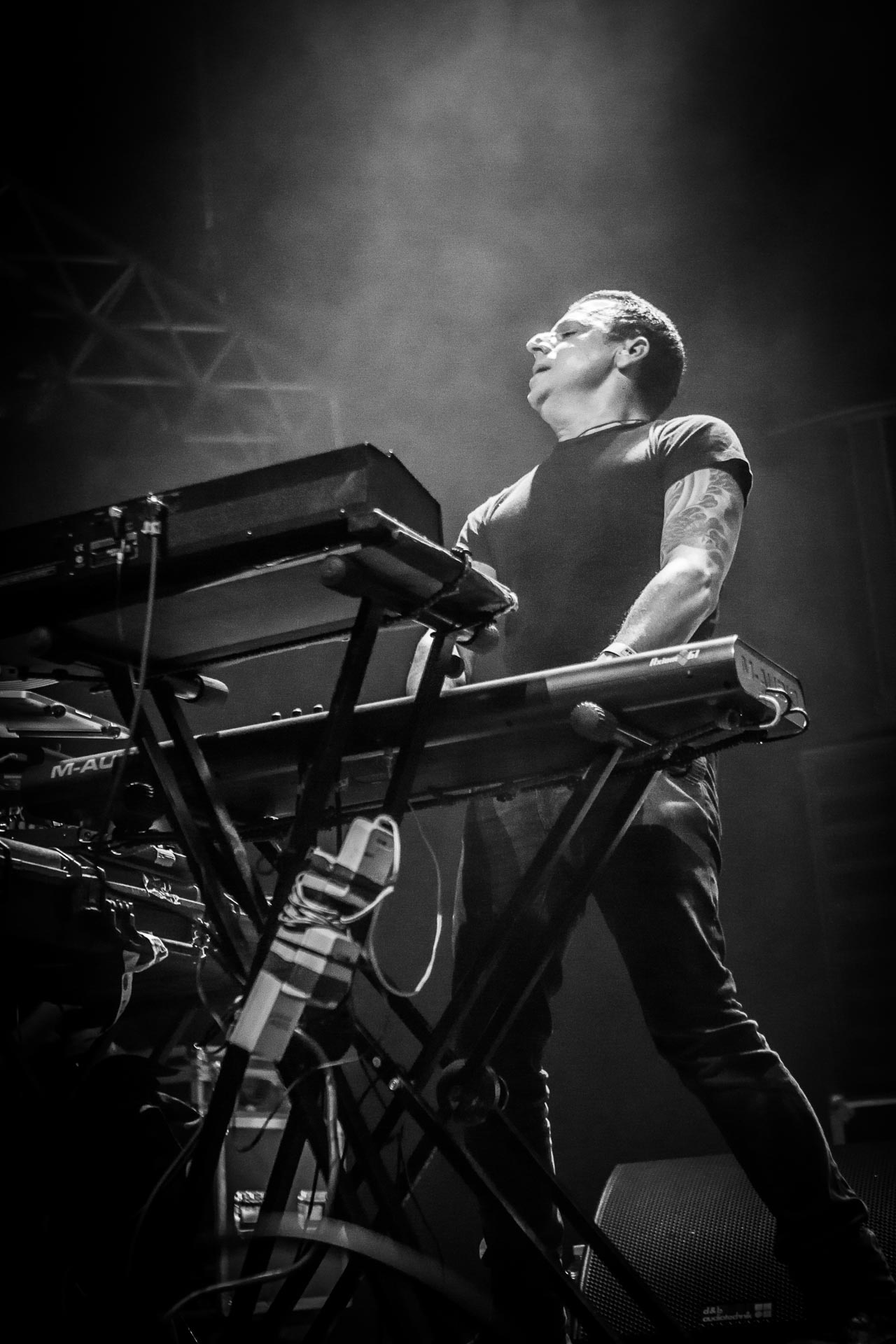

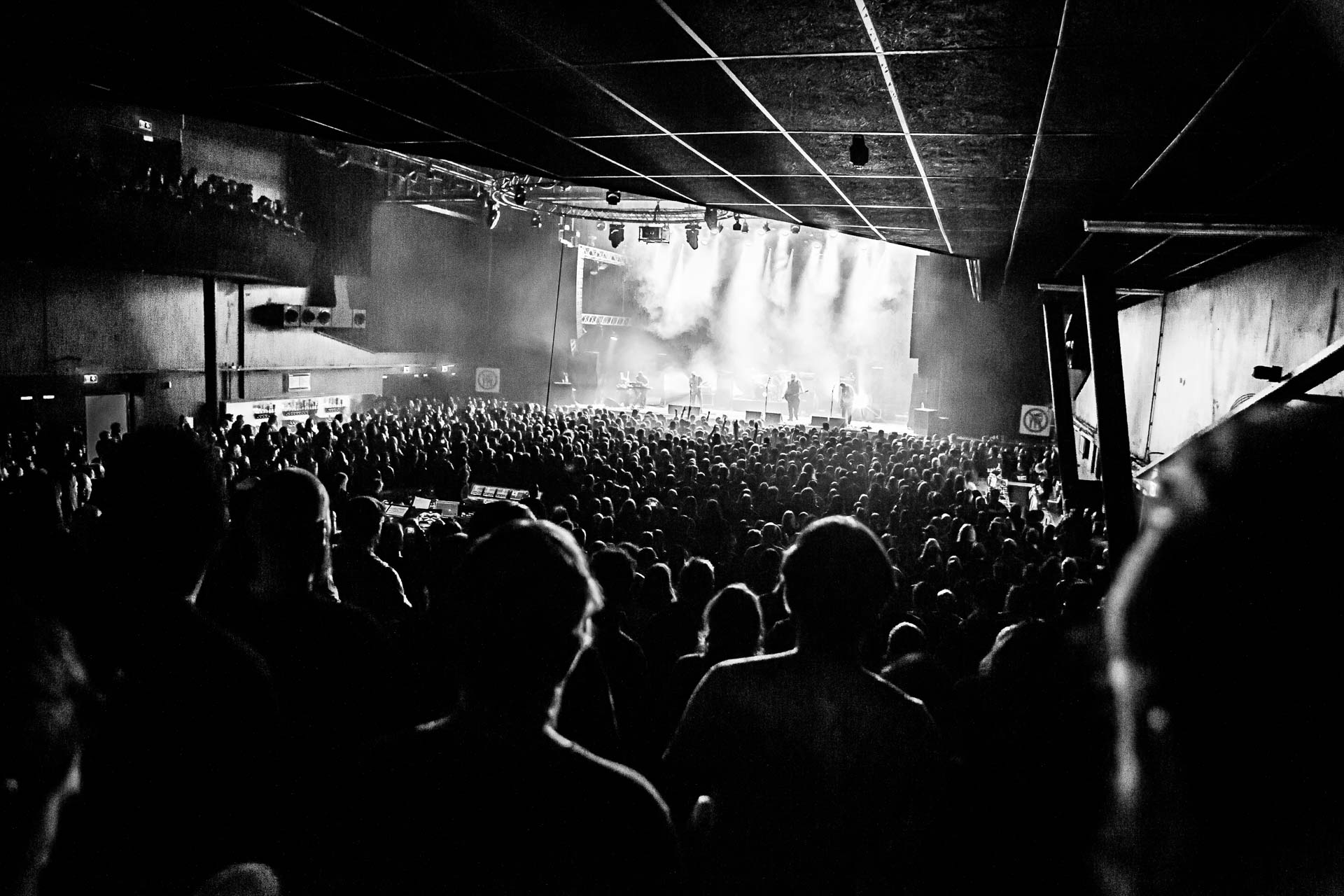
Roadburn Deep Dives - Wolves In The Throne Room
Roadburn 2008, Saturday 19 April, 013 Green Room
It happened 13 years ago, but for those of us who were lucky enough to have been there, the first Wolves In The Throne Room appearance at Roadburn remains absolutely seared into our memories. Rarely has a band made such an impact, especially a rather young and inexperienced band (at the time), and at a festival that wasn’t exactly known to host the genre they mostly inhabit. It was a converging of unlikely circumstances that forever changed both artist and event.
“That was such a pivotal show for Roadburn,” says Walter, the festival’s artistic director, also still in awe of that mythical performance all these years later. “It totally opened our doors for the more black metal side of things: the more ‘organic’ kind of black metal, as it was often called at the time. That show single-handedly completely paved the way for that sort of thing in the following years of the festival, and it’s obvious how important that kind of music became at Roadburn.”
Of course, for pivotal moments to occur, the audacity to take risks also has to be there. How was the decision to feature an artist that, for all intents and purposes, didn’t really seem to fit the festival’s orientation at that time? Walter ventures that Wolves In The Throne Room’s Two Hunters album made quite a fuss in the underground, so there was a lot of talk about them, even in Roadburn circles. But you get the feeling that, like some of the best decisions made by Roadburn, it was really a gut thing on the part of Walter. Wolves made sense for Roadburn on a primal level, as if they had mutual ancient ancestors and were connected by blood without even knowing it. And the plunge was taken by both parts without hesitation.
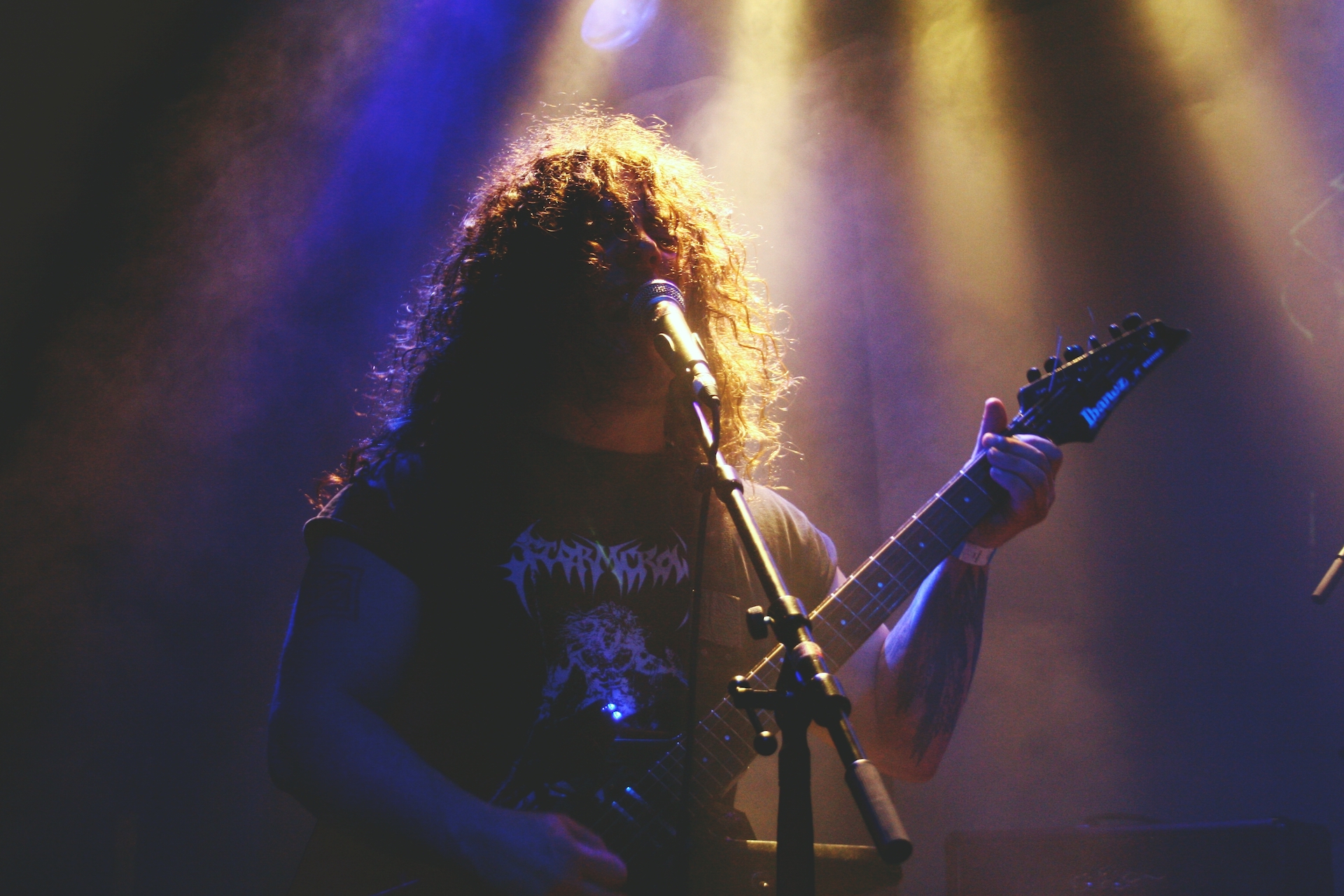
“We were so green at that point, and so deeply punk and underground in our orientation, that we didn’t know anything about the festival,” laughs WITTR drummer Aaron Weaver. “Just the concept of going to Europe and playing festivals was like going to outer space: it felt like uncharted territory to us. But it also felt like something special and important. It was our first fly-in, our first one-off show at a festival. Nowadays, we know what to expect and it’s part of what we do, but at that time it was an alien experience. At the same time, though, as soon as we got there, we immediately felt at home.”
“It was Andreas Kohl from Exile On Mainstream who knew the guys and confirmed how good the band was live, and we trusted him,” Walter remembers. “We asked him to talk to them and see if they’d be interested in playing Roadburn. I think in a way for them it was also a breakthrough in Europe. The festival broke new ground that year, and WITTR were doing the same for black metal: everything came together in that single show. It was obvious for us that they were a Roadburn band, even if, at the same time, we were still very much rooted in stoner, doom and post-rock.”
This acceptance was felt by the band, and created an instant connection that endures to this day. “It was so welcoming, even to a bunch of complete outsiders like we were,” Aaron offers. “What has been created there by Walter and everyone else, the Roadburn community, is so special, and unique, and family-oriented. In the best sense of the word, it has a true cult spirit, in that everyone there is spinning in the same wavelength, and tapped into the same source of energy and of spirituality. There’s a similar vision. Everyone dreams the same sort of dreams. I almost want to call it a medicine lodge. Cultures always have these sorts of secret societies, where people who are in some way united spiritually come together to get into it, get weird. We immediately felt that Roadburn was a spot where we were understood, despite all of our weirdness.”
Maybe even because of their weirdness. After all, Steve Von Till has endearingly described the Roadburn community, be they bands, fans or staff, as the “freaks in the corner”.
“I think we also felt that something was forming, perhaps even more clearly because of that difference in style between us and the other bands on the bill that year,” reasons Aaron. “It was a formative time for Wolves In The Throne Room and also for Roadburn – obviously in the following years the festival has expanded beyond any kind of genre: it’s now something much bigger than an event attached to any genre or style.”
Of course, none of these good vibes would have mattered much if the show wasn’t a gigantic thunderstorm of unforgettably epic proportions, but that’s exactly what the band delivered. You can still witness it for yourself on the Live At Roadburn album which ensued – it was one of the first in this series – or on several quality videos of the event that still populate the internet. Aaron confesses that he rewatched a couple of these videos before our chat, and even he was impressed.
“Tight is not really our thing, but I was struck by how wild it looked,” he says in awe. “It’s still like that, but I think that at that time our band was really tapped into a really wild and out of control energy. That’s something I noticed, and I think that’s what got to the people who watched it as well: that the music is constantly on the edge of falling apart. It’s like we’re all physically pushed to a breaking point, with the harshness and the physicality of the playing, and that’s right there on display in those videos. It’s that spot right before everything shatters into pieces that sounds good. That’s not the usual metallic approach, metal is usually more methodical, there’s more headroom, but what we were doing, and I think we still do, there’s no headroom at all. It’s just pushed right up to the ceiling.”
Walter remembers a similar feeling, and the lingering effects of it: “I remember the excitement in the air about that show, people were talking about it so much afterwards. When it was over and people were coming out, I was outside and I felt it: it was palpable, the excitement coming from that room. It was noticeable something had happened. It’s a landmark that changed everything for us. After that show, we started to book a lot more experimental, heavier bands for Roadburn. We dived straight into the black metal world, and later on we explored the genre even more, like with the Icelandic scene. That show was the starting point for Roadburn to embrace much more extreme music, from black to death metal, and other genres: it all started there. It inspired us to keep diving into those worlds and cherry pick all the bands we thought would be suitable for the festival.”
Wolves In The Throne Room would return a couple of times more to Roadburn after 2008, and hopefully will still chalk up a few more appearances in the future. It’s another case of a relationship that was formed and of two entities who still continue to grow together.
“Roadburn feels like a weird alternate dimension,” Aaron says with a laugh. “Every time we’ve been there since, the feeling is similar. Although I will say that as we became more seasoned, it also became easier to be fully present, maybe notice more what’s going on, instead of being in that state of barely holding it together, barely knowing your way to the stage, which is how we were back in 2008.” Fortunately, their music still remains, as it should be, right on the edge of being uncontrollable. Let’s keep it that way.
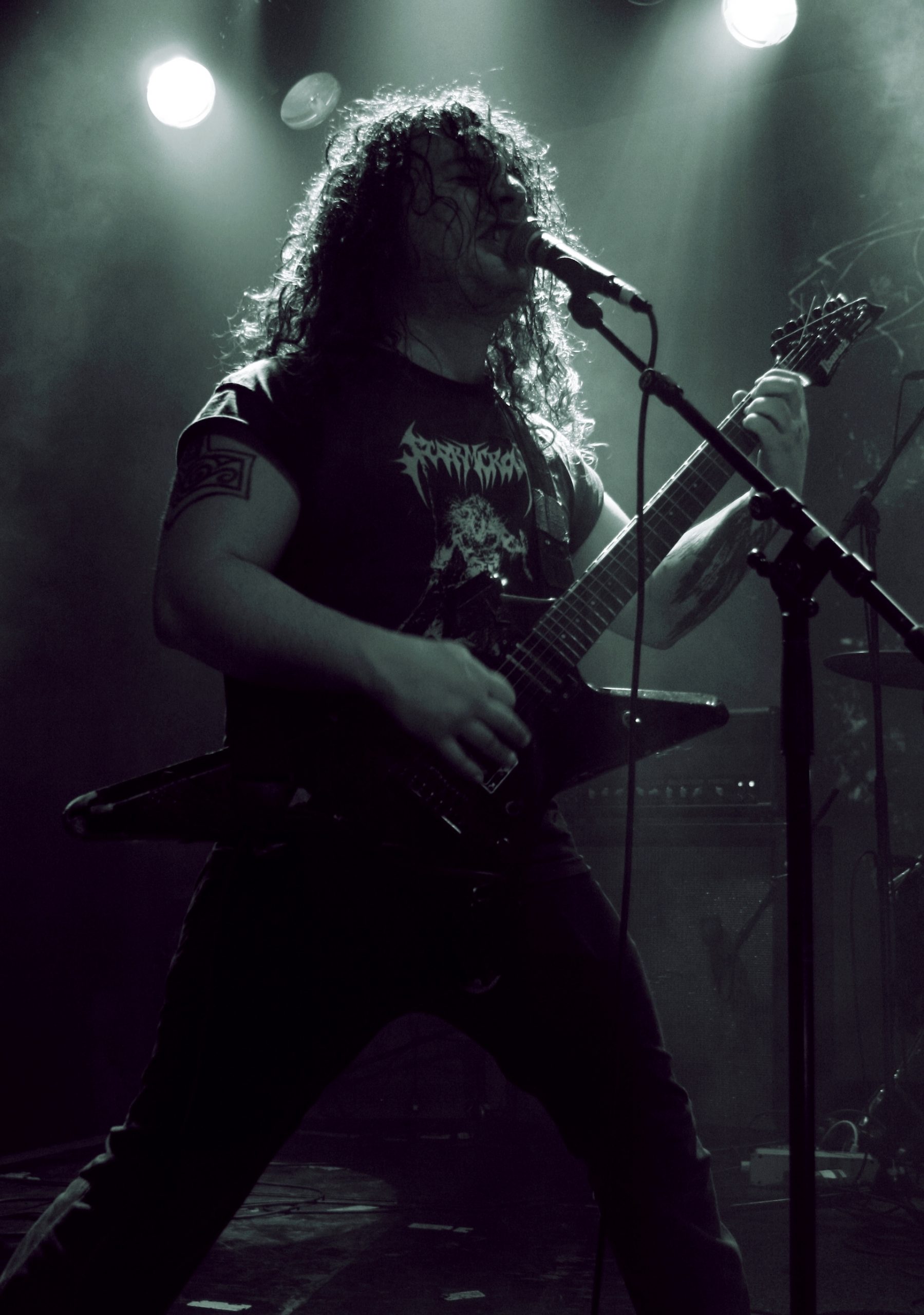
Roadburn Deep Dives: Earthless
Roadburn 2008, Friday 18 April, 013 (Bat Cave) Main Stage
Imagine that you’re in a relatively small band, taking your first tentative steps outside your own country. You’re playing at a cool festival: in the smallest room, but that still means that a couple hundred people will watch you play. You’re having a smoke in those last 10 minutes before your show, when suddenly, the head honcho of the whole festival steps through the door and tells you that, newsflash, you’re headlining.
How would you react? You’d probably be wondering what the hell they put in the Netherlands weed. Surely that’s what Earthless guitarist Isaiah Mitchell and bassist Mike Eginton also thought when this exact dream/potential nightmare scenario happened to them in 2008. Earthless 2008 is firmly rooted in Roadburn lore as one of “those” shows: where just having been there gives you bragging rights forever, and Earthless more than rose to the occasion and put on the performance of a lifetime on the Main Stage. But let’s rewind a little bit, and try to piece together how they got to this surreal situation.
— José Carlos Santos
“It was simply a stroke of fate,” explains Walter, Roadburn’s artistic director. “We had booked Isis to headline and play an extensive two-hour set, but unfortunately they ended up having to cut it short to roughly 45 minutes, and leave right after. By that time, we didn’t have any other bands scheduled in the Main Stage anymore, as all that time had been reserved for Isis. There was a band already playing at the Bat Cave [the smallest venue at the 013 before its redesign a few years ago], and only Earthless remained after them. Me and the production went a bit nuts at that point, because we were very afraid of 2.500 people trying to cram into the Bat Cave for Earthless, as that was going to be the only show taking place at that time.”
It’s one of those situations that people who don’t organise festivals rarely think of: it isn’t a simple matter of just choosing a band and a venue – you have to predict and control the flow of people, so that potentially dangerous circumstances are avoided.
“We completely panicked – myself, production, stage managers: we all quickly realised we needed to have something, anything, happening on the Main Stage, or we’d be left with a couple of thousand people who had nowhere else to go,” Walter remembers. “I really didn’t know what to do. In desperation, I ran to the loading dock, just to see if I could spot someone from a band, any band, that would be willing and ready to play. Production were shouting in my in-ear communication system, and all I remember is going a bit crazy because time was ticking, and I needed a solution, now. I felt like I needed some air, so I walked back up the stairs – and I ran into Mario.”
This Mario was none other than Mario Rubalcaba, the drummer for Earthless. Mario was, by a delirious stroke of luck, walking around the venue, and he was the right man at the right time.
“I was on my way up to the little Bat Cave, ready to go set up my stuff,” the drummer recalls, still amused at how everything went down. “On my way there I ran into Walter, who was… I wouldn’t say he was in panic, but he was in a kind of state like that, I could tell there was something going on.”
Make no mistake, Walter was indeed in a panic.
“I asked Mario, “Do you guys want to play in the Main Stage, right now?”, Walter laughs. “He said yeah, but that he needed to check with the other guys too, so I ran to their dressing room, where I saw Isaiah [Mitchell, guitar and vocals] relaxing with a little smoke, and I asked him and Mike [Eginton, bass] the same thing, and I didn’t even give them time to answer. I just told them, ‘You have to get downstairs now: you’ll be on the Main Stage in five minutes. They were stunned, just looking at me like, ‘Dude, what?’”
Walter laughs, though no one was in the mood for chuckles back then; though Mario seems to have taken it all in his stride. “I was like, alright!” he laughs. “Regardless of a lot of people at the time not knowing who the band was, I saw it as a good chance to see what happened in that scenario, so we just went for it and did it. It was a lot of fun!”
But Walter’s panic mode, while subsided, wasn’t over yet. “Next I went to talk to the 013 tech crew for the Main Stage – the light guys, the sound engineers, the backline techs and everyone,” he recalls. “I told them what had happened, that the band who was going to play last at the Bat Cave had agreed to help us out and switch to the Main Stage at the last minute, and they all agreed that we would treat them like royalty!
“So they got everything: the best possible backline we had, the best sound and monitor engineers, the crew helped them as much as possible with everything they needed, full monitors, huge visuals, absolutely everything,” Walter continues. “While they were setting everything up, I headed to the office upstairs and printed a few A4 pieces of paper that said, ‘Earthless now playing in the Main Stage’, and I glued them on the doors of the Bat Cave, the Green Room, and in other strategic places. I was like a madman, running all over the building, putting papers up. If only we’d had Twitter back in 2008!”
And then, as all of us who were lucky enough to be there remember, magic happened. Even with Walter’s paper runs, not that many people were there at the beginning of the show, but when that supreme power known as word of mouth starts rolling, you don’t need Twitter. After just a few minutes, the room filled up from a couple hundred to a couple thousand people, all based on the jaw-dropping, mind-expanding jams that Earthless, just those three dudes, were letting loose on that humongous stage.
“I definitely remember the room filling up as we played, and kind of quickly too,” Mario says, thinking back. “At the time we were playing really new material, we had a song called From The Ages that we had just started to play live, it hadn’t been released yet and it would actually be a couple of years until the record with that song would come out: Roadburn was sort of its live debut. It was great to be able to do it without anyone knowing what it was, just watching it translate to a huge crowd and seeing what effect it had.
“I remember the sound on the stage was really good, I was stoked on the gear too,” he continues. “I was lucky to use J Mascis’ kit that he has stationed over there in Europe with some relatives. At the time he was playing this really big 28” bass drum, and he let me borrow his drum set. Everything sounded incredibly good, and I totally forgot it was getting recorded! I only thought of that when we got home. I’m so happy we had that show recorded, because it meant a lot to me and to the band. To come home and a few weeks later get the recording, and thinking about putting out that live record – especially since at the time the Live At Roadburn records weren’t common – was really special.”
Walter remembers that, “at the beginning there weren’t more than 400 or 500 people in the room, but it was obvious from the start that they were a phenomenal band. It was instant impact – boom! They floored everyone straight away, and the place filled up really quick. Everyone started texting one another, calling their friends in, and people went nuts. To this day, this show is the stuff of legend at Roadburn.”
For that reason alone, it deserves to be a part of this prime selection of Deep Dives. But Earthless 2008 also became a lot more than that. “In a way, it was a show that helped us unite the several scenes – psych, post-rock, post-metal, the more dark and experimental metal stuff like Neurosis: everyone was together at that show,” Walter remembers. “That’s the moment that I can pinpoint when Roadburn really started to feel like a scene itself that could unite all these little scenes, a gathering of like-minded people, a safe haven for all the underground misfits that all came together at Roadburn.”
It was also a learning curve, as two years later, because of that damn volcano, Walter and the staff would not only have to find an extra headliner to fill a few hours, but replace over half the festival lineup while it happened. It was panic mode x1000: but at least they had some experience in crisis management.
Finally, a kinship and an ongoing relationship developed from this starting point between the band and the festival, with mutual benefits to be reaped from both parts. “Roadburn was firmly rooted in Blue Cheer/Hawkwind, in the past,” Walter says. “But these two editions, 2007 and 2008, culminating in this unbelievable show by a relatively unknown band, made us realise there was a whole world of current bands, here in the now, doing new and exciting stuff, and that we had to turn ourselves to the future too.”
“It’s just such a cool thing to have,” Mario gushes. “Walter and everyone at the festival have been, since day one, the best people to work with. Just the whole vibe of the festival, I’ve been lucky to have been there five times and I’ve always been lucky to play, but even if I was just hanging out I would be completely stoked anyway. Each year, it’s the festival that rises above, keeps it fresh, and people keep digging it.”
Walter puts it simply: “Earthless and Roadburn became kindred spirits.”
Roadburn Deep Dives: Warning
Roadburn 2017, Saturday 22 April, 013 Main Stage
Don’t get us wrong – we’ll never knock wishlists. Wishlists have become a daily part of Roadburn, and it’s as exciting for us all to critique each others’ as it is to write them ourselves. We all have our own wishlists, too: this writer once handed Roadburn’s artistic director Walter a list, divided by categories, with 157 names – ranging from the absolutely impossible (like Darkthrone), to bands with 10 followers on Facebook.
The main thing that has to be managed when you make a wishlist – as well as stopping them from becoming their ugly cousin, a ‘demands list’ – is expectation. The booking process is often a long, bumpy and winding road, which more often than not leads to an insurmountable dead end, especially when dealing with inactive or ‘unlikely’ bands. We could write a book on the reasons why that band you really, really think would be so obvious to have at Roadburn hasn’t made it there yet. You have to learn to accept and deal with all kinds of situations. Getting your favourite band to play Roadburn can be a process that lasts for years until, in the best case scenario, it finally happens.
— José Carlos Santos
— Paul Verhagen (pics)
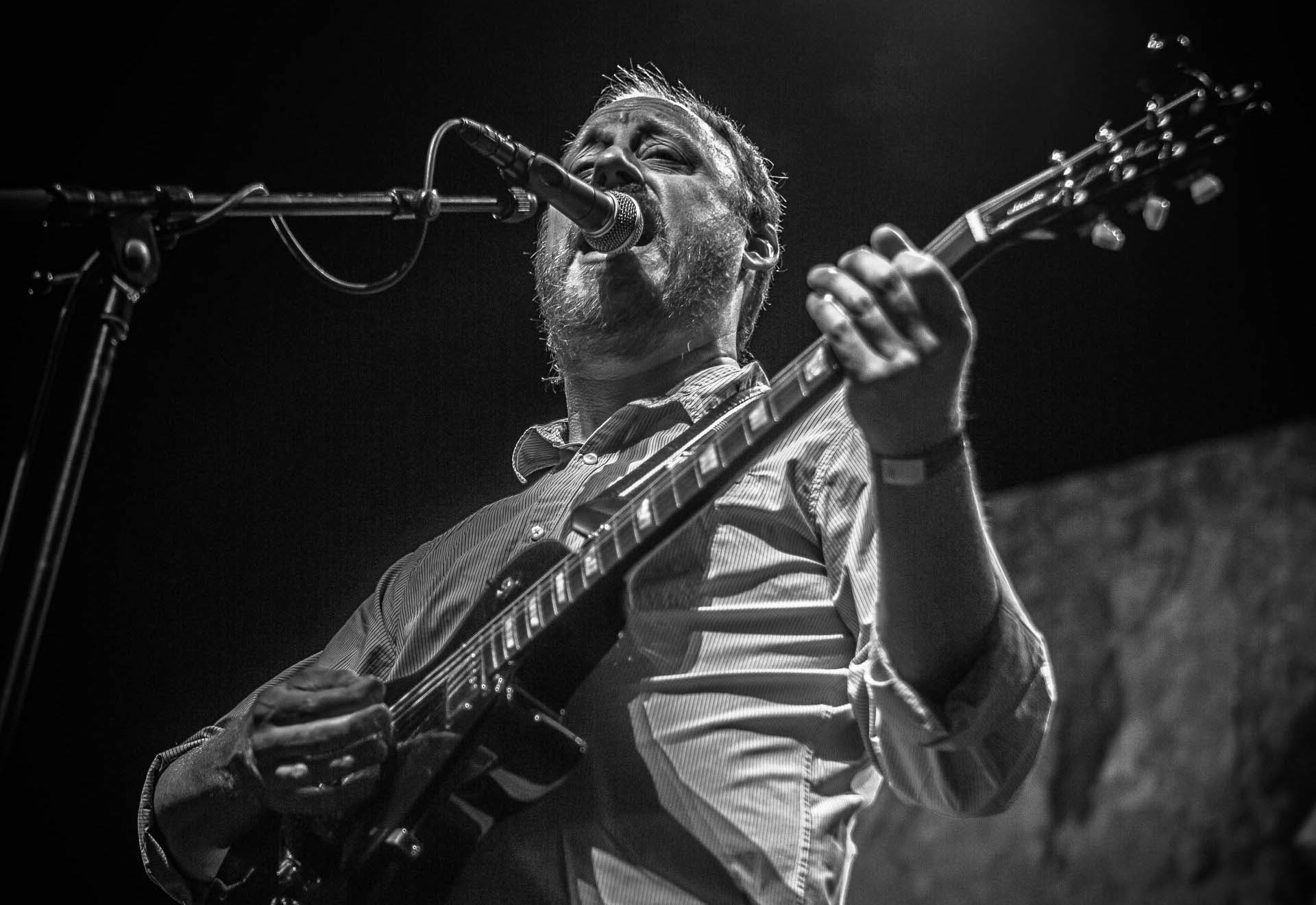
Sometimes, the best course of action is to just do nothing, as Walter learned when trying to get Patrick Walker’s old band Warning to reunite and play their classic album Watching from a Distance at Roadburn. We all wept with joy and raw emotion when the likes of Footprints and Bridges finally echoed through the 013 Main Stage in 2017, where Warning seemed like they’d always belonged. It was one of the most profoundly touching shows this writer has ever seen, at Roadburn or anywhere else. But it took an honest conversation in London to get the ball, well, not quite rolling, and then a relatively long wait to make it happen.
“For me, the biggest thing that I took from that Warning show is that you have to be patient with people,” Walter reasons. “Sometimes it’s no use pressuring an artist into doing something when you want them to do something. Some of our most special shows have taken years of preparation to put together, and sometimes that preparation just involves waiting for the right moment. With Patrick Walker and Warning, that’s exactly how it worked. He was very honest with me – he told me he would want to do it, he told me that it would happen at some point, but he asked me not to pressure him and not to put him on the spot. And that’s exactly what I did. I let it rest, I didn’t push it, and a couple of years after that first conversation he finally brought it up again and we were able to make it happen.”
That first conversation took place, at a Primordial show in London. “There is a photograph of the show where this conversation happened, that Becky [Roadburn’s publicist] took,” Patrick Walker recalls with a laugh. “I had been rehearsing for the weekend with 40 Watt Sun, and a friend told me to come down because Becky and Walter would be there. So I went down after rehearsal, and I spoke to Walter about the Warning thing. I don’t remember much about it, to be honest! But I do think that was probably the first time we brought it up. I was in no hurry to do it because we were rehearsing for the second 40 Watt Sun at the time, so my priorities were very much elsewhere. I needed a while to focus on other things, because I knew it would take a little time to get Warning back together.”
Even if it was going to take some time, it was clear to everyone involved that the first return of Warning would have to take place at Roadburn. “I knew I would tour it,” Patrick says, “but I had no interest or any thoughts about debuting the show anywhere else. I had two experiences of Roadburn prior to that with 40 Watt Sun, so I knew what kind of festival it was, and it would have been that or nothing. I just can’t think of another festival where it would have felt like that…” He makes a long pause to collect his thoughts.
“Roadburn is a festival where everyone is made to feel of equal importance,” he continues. “It doesn’t matter whether you’re the headlining band or if you’re playing in the Green Room at 3pm on Friday afternoon; everyone is made to feel as if they’re of real importance to the success of the festival, that they are of the same value to the audiences. And every audience at every show proves this. The enthusiasm is the same, and everyone is always very respectful of the bands. It’s also a much more leftfield festival than any other which specialises in heavy music. I just couldn’t imagine doing it anywhere else. I had no obligations to do the show there or anything, but Walter just treated me so well throughout the years and my experiences playing there were so good, that there wasn’t any question.”
The Warning chapter seems to be fully closed now, after the shows, reissues, and everything else that went on for a couple of years following that impactful reunion at Roadburn 2017. It was an important closure that the band needed to have. When Patrick asked Walter for a little wait before planning the reunion, he wasn’t pushing things into an indefinite hiatus – he knew it would have to happen.
“The thing with Warning is, we were one of those bands cursed with achieving a kind of cult success posthumously,” Patrick chuckles. “We got a kind of reputation after we split up, that we could never enjoy. I was eager to get that band and that music behind me while I was doing it, to move on to other things, but it did reach a point where I remember thinking, ‘I can imagine doing that again, I would quite like to do those songs again, with a proper, full band, in front of audiences now.’ Also, I wanted to play the album as it was recorded, to use two guitars and everything. There were things on the record which, in hindsight, I regarded as bad judgments on my part. While I couldn’t go back and re-record the album, I could certainly repair them in a live situation. I just wanted to do it, I wanted to travel with Marcus [Hatfield, bassist] again because he’s one of my best friends. After the hard work of doing the second 40 Watt Sun record, it felt right. And now I feel like I’ve done that record justice. It was good to be in touch with a lot of people whom that music has touched. It’s done now.”
The fact that Warning is a done chapter now isn’t any kind of dramatic gesture by Patrick. He’s just not the kind of artist to have different projects and outputs. “I’ve always said that it doesn’t matter what band I’m playing in, what band name I’m playing under. The music will always be the same,” Patrick explains. “Whatever music I’m writing and performing is always part of the same artistic approach. It’s not a question of stopping one thing and then going back and doing another. It’s a timeline that just keeps going, no matter what the name is. People associate Warning with me doing ‘doom metal’, but that’s just because that’s the record I did in 2006. Those shows merely revisited that period of my life. The record I made four or five years after that was still a ‘heavy’ record, but it was already different. It was one step away from that. And the next one was another step forward. If I would do music under the Warning name now – which I wouldn’t – it wouldn’t sound any different from what I’m doing now. I only ever make the music that comes naturally, that comes out of me.”
As for the Warning show itself at Roadburn 2017, the preparation wasn’t exactly peaceful, as Patrick reveals: “It was quite stressful, because the biggest thing that happened prior to the show was that Christian [Leitch], who was the drummer for 40 Watt Sun at the time and who had been the drummer in the last incarnation of Warning, he pulled out about four or five days before Christmas in 2016, so that was less than four months before the show.”
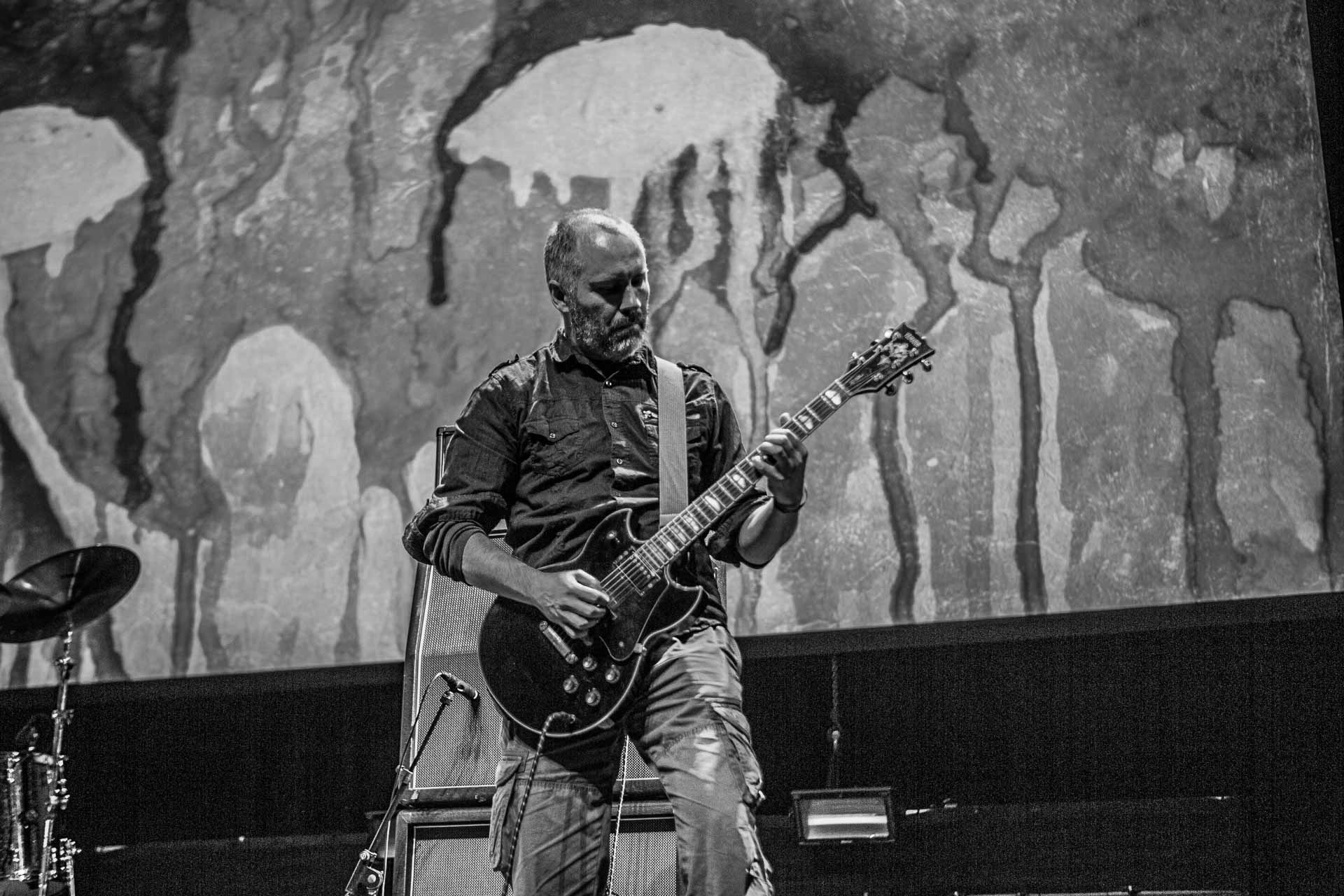
“I thought, fuck,” Patrick continues. “What am I going to do? I spoke to Becky, and she recommended Andrew Prestidge, who I didn’t know, but I listened to some of his recordings and watched some of his videos. I liked it, so I contacted him, explained the situation, which was a bit awkward – ‘Oh, we have a show on the Main Stage at Roadburn in three-and-a-half months, and we’ll be touring after that…'” Patrick laughs. “He had a listen to the album and he said he’d do it, and we only started rehearsing around the end of January, but everything ended up working very well. We still needed to do some rehearsing right before the show, because although I had been performing rather consistently, Marcus hadn’t been on a stage in about eight years, and Wayne [Taylor, guitarist] hadn’t performed to an audience in about 20 years! I did feel a bit vulnerable, so we also had a rehearsal the day before we performed.
“As for the day of the show itself, I don’t remember much, to be honest!” Patrick says. “What I remember the most is that I took about eight hot showers! There’s a lot of air conditioning in the backstage area, and it was really drying out my throat, so the only way I could lubricate my voice properly was to take these near boiling hot showers. I just kept walking out of the dressing room in a towel all afternoon, Andrew was saying, ‘Fucking hell, you must be the cleanest man in doom!'”
So it was a sparkling, squeaky clean Patrick Walker who stepped up on stage to deliver those mournful, exhilarating, transcendental songs we all know and love, and, according to him, “it went pretty smoothly, I think”.
“Pretty smoothly” is by far and away the most shining compliment you will ever hear Patrick say about any of his shows. And if any doubts remain that their Roadburn appearance was something special, the fact that not even Patrick can poke holes in that performance is the absolute proof of it. “I don’t remember beating myself up about it afterwards,” he says with a chuckle, before adding, very seriously: “When the show finished, all I remember is feeling incredibly proud for the rest of my band. I felt wonderful for Marcus and Wayne, and Andrew too, because he was a lifesaver for us.”
And now, as with most other artists that we’ve featured on this Deep Dives series, the story continues. The ongoing relationship is there. As many of you will know, 40 Watt Sun were one of the main choices in Emma Ruth Rundle’s 2020 curatorship that sadly never took place. But we are fairly confident (and we’re not pushing you, Patrick, don’t worry!) that we might see him in Tilburg a few times more.
“I’m not a prolific live performer,” Patrick says. “I don’t do a lot of shows, and that’s largely through choice. But the times I’ve done Roadburn, it’s always felt like a kind of a milestone. It’s always made to feel like an event. They’re some of the best shows I’ve played, and to some of the best audiences as well. When I think back to the 90s, the idea of playing this kind of music at a festival like Roadburn would be unfathomable. There’s just such great diversity and tolerance from everyone there. It will always be my festival of choice. And like I said before, none of this has nothing to do with the billing or the stage you’re on or anything like that. It’s down to the credit of the festival and Walter that everyone is made to feel equal. We’re all on the same path. We’re all on the same journey.”
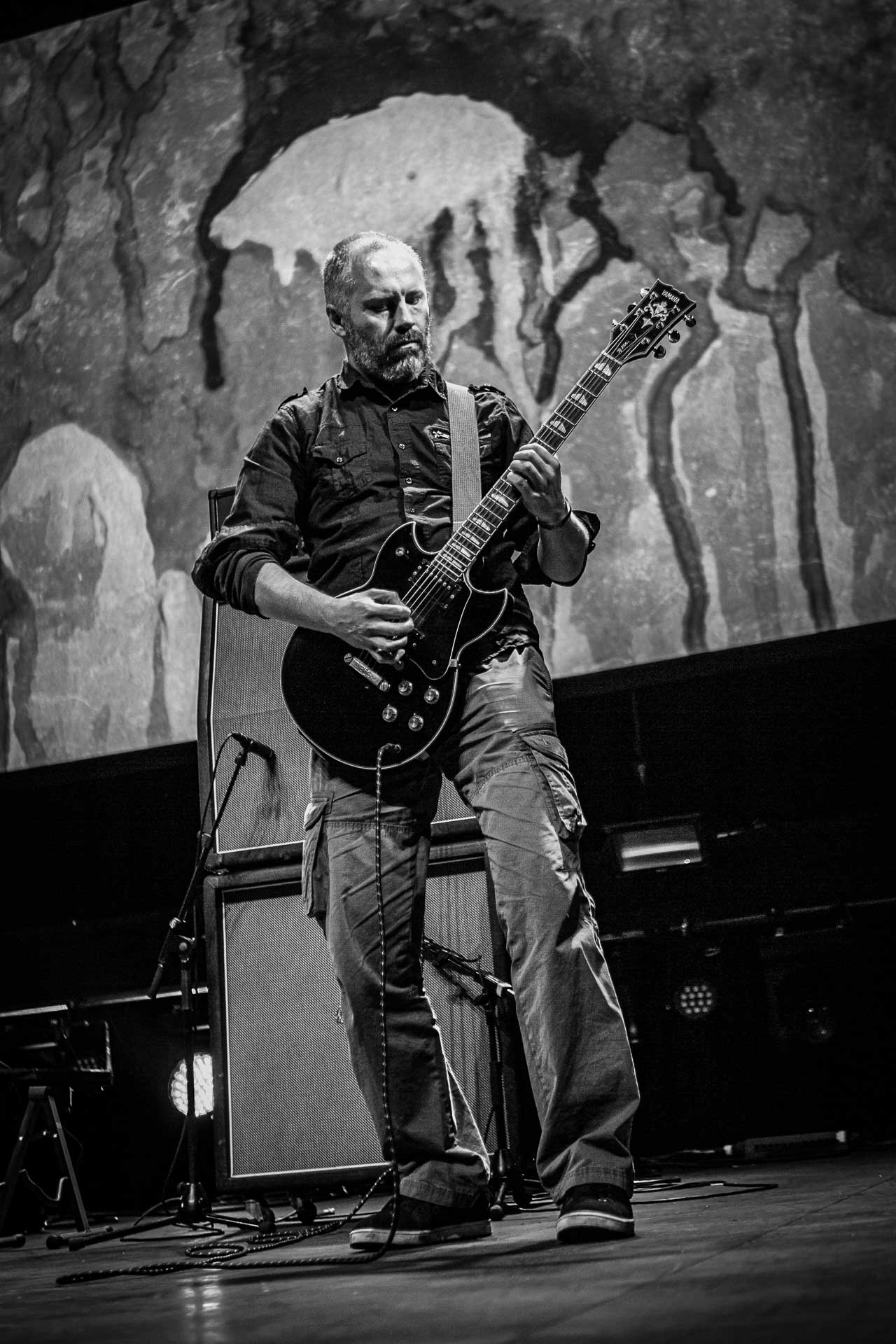

Roadburn Deep Dives: Eyehategod
Roadburn 2010, Sunday 18 April, 013 Green Room (Setlist: Not even the band knows.)
Eyjafjallajökull. Icelandic for ‘motherfucker’. It’s not, really (it’s ‘glacier of the mountains of the islands’, if you must know). But after 2010, when its eruption led to the chaotic disruption of the European air space and subsequently the Roadburn lineup that year, we should have earned the right to change that particular translation. Roadburn would go on to have such a wonderfully close relationship with the Icelandic underground, receiving the cream of their various crops year after year but back then Iceland had other plans. Why, Icelandic nature, why?
— José Carlos Santos
— Paul Verhagen (pics)
But, there was a silver lining. Several, even. First of all, Roadburn managed to get all of the bands that had to pull out because of the volcano back the following year. Secondly, many bands stepped up to fill those slots in 2010 with such a desire to help, such a passion to make up for all the losses, that their performances turned into something legendary. So, perhaps, we should actually be thankful to motherf… pardon, Eyjafjallajökull. During those wild hours of 2010, Roadburn really discovered what its community is made of, and bonds formed there are unbroken to this day.
One particularly endearing and representative story from the 2010 edition is that of Eyehategod. The legendary NOLA band had played on Thursday, on the first day of the festival, before the full reach of that fateful ash cloud had made its presence felt, Then they went on their merry way, to fulfil the remaining dates of their European tour. However, when Eyehategod heard about the depressingly empty lineup that Roadburn was facing for Sunday, they reached out to the festival from thousands of miles away and offered to come and help make it right with a second performance, even if it meant driving all night from the North of Italy to Tilburg.
“My memories from that year are a mess, it was so difficult to reschedule everything and to find all the replacements; everything was chaos,” remembers Roadburn’s artistic director Walter. You can tell it’s still rather painful to bring back those memories of the year when the sky seemed to have fallen in on Roadburn.
“I remember on the Saturday night of the festival, I got a call that was either from Eyehategod or their tour manager,” Walter says. “They told me they were in Italy but that they would drive up to Tilburg and get there in time to play as Eyehategod, if we wanted. Since the Afterburner [the name previously given to the Sunday of the festival] had almost completely fallen through, we were totally at a loss, desperate to find bands to cover all the slots, so that was a huge thing for us, especially as they said they could even play a longer set than usual to fill up a bit more time on the schedule. I was incredibly moved by the offer. Of course we told them just show up whenever you can and we will make everything work. It was such a great thing they did for us, without asking for anything in return. We didn’t even discuss a fee or anything! All they wanted was to play, be a part of the festival and to help us out. They were super stoked to be there.”
Mike IX Williams’ memory of the event is, rather predictably, even hazier, but such a feeling is not erasable, not even by the many beverages the Eyehategod frontman was consuming at the time. “I was really drunk back then, man,” Mike says with a weary laugh. “I was drinking a lot of vodka at the time, so I don’t remember a lot of it. But what I do remember very well was getting word of what was happening, our tour manager telling us there was an opening, and asking if we wanted to go help out and play another show.
“I remember being really happy, because we absolutely love Roadburn, we’ve always loved playing there: it’s one of our favourite places in the world. We were very happy to do it. It was exciting. I think it was a day off that we had, so we decided to use that to travel back there and just play and have fun with the Roadburn people.”
After a couple of days of bonding together to overcome adversity as one, the Roadburn community was clearly, despite everything that was going on, at a high point when Mike and the boys got there.
“Man, we even played Fuckmouth, which should tell you everything about how that show was,” Mike laughs. “People still talk about that today. Fuckmouth was kind of a joke between me and Brian [Patton, ex-Eyehategod guitarist] and Joey [LaCaze, Eyehategod’s former drummer who passed away in 2013].”
Fuckmouth was the name given to what can only be described as something of a mutant sideproject. “We would just do these grindcore songs sometimes, we’d say it was Fuckmouth,” he says.
“Overall, it was a super fun show,” Mike says. “People were just yelling out songs, and we played them! I have no idea what songs we actually played, or how many; I just know we kept cranking them out for hours. We’re pretty loose anyway with that kind of stuff, we make up the setlists as we go along, but that show was like the extreme version of that. In a special situation like that, we thought we’d just keep playing until people were sick of us!”
We’re not sure that’s possible – if we had our way, they’d still be up there today, 11 years later, cranking out those wonderfully ugly-ass tunes of theirs.
“I just remember that everybody went completely berserk, it was insanity and it was amazing,” Walter says with a wide smile. “There was such a good rapport between them and the audience, it was a completely unified vibe. There was no difference between band and audience, it was all about everyone being there together in the room. It was a reflection of how that whole edition turned out in the end – the camaraderie was so strong and everyone was so connected: bands, staff and fans, and Eyehategod fit right in. The connection that band has with the Roadburn fans and with the whole staff of the festival is remarkable. They’ve always been completely in sync with us.”
The love, it seems, is 100% mutual. “We love Walter, he’s always treated us really well,” Mike says. “We haven’t played Roadburn in a few years, but when things are normal again we’d love to come back. The two shows we did with Corrections House [in 2014] were also so great, it always feels like a special place to be. Whenever we can come back, we will!”
As Mike talks about the 2010 Roadburn, more memories come trickling back; he even remembers a few post-show shenanigans that went on backstage. “Church Of Misery played that year, didn’t they?” Indeed they did. “I knew it, because that was the first time we actually met them,” Mike says. “We’re really good friends with them now, we’ve played with them a bunch of times, but we hadn’t met them yet back then. I remember being down in the dressing room area at the 013, and Joey started throwing bottles against the wall, there was broken glass everywhere, and the guys in Church Of Misery were looking at us funny and didn’t really know what to think of that. To us it was just having crazy fun and everyone was in a great mood, but it got a little too crazy, and the look on their faces was great!”
Karma was also kind to Eyehategod after their good deed, as they managed to nab one of the very few flights that made it to the US after their show. “We were nervous about being able to make it back home, but we got lucky,” Mike says. “Flying home after that happened, I remember we passed over near Iceland and they made us close the windows to the plane. I think they didn’t want us to see the smoke: that was really weird.”
All in all, Roadburn 2010 was all about unity, community, and facing trouble head-on. “That year was special because it cemented our community big time,” Walter states. “And Eyehategod was a really important part of that. Their attitude emphasised what Roadburn was all about. We faced adversity together, as a community, as a family, and we overcame it together. Everyone stuck together. And that show was the most visible representation of that feeling. It showed our true colours as a tight knit group. We’re there for each other, we have each other’s backs, always.”
A decade later, it was that same spirit of community that made Roadburners approach a festival cancellation due to a pandemic by communicating on a Facebook group where they pretended to be at the festival instead. A year later, we will keep going through it together with Roadburn Redux online. We’ll all be okay on the other side of this. Together.
